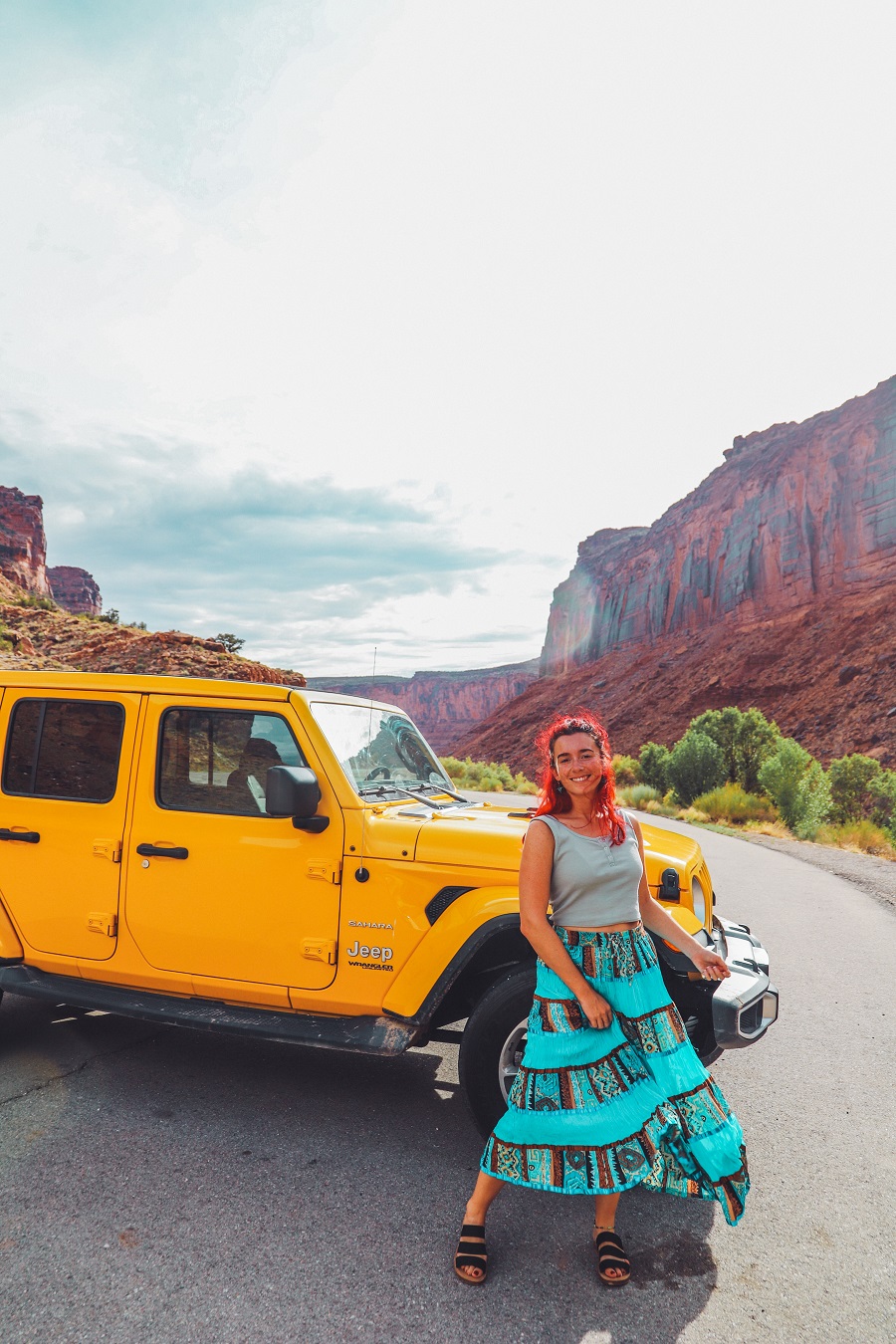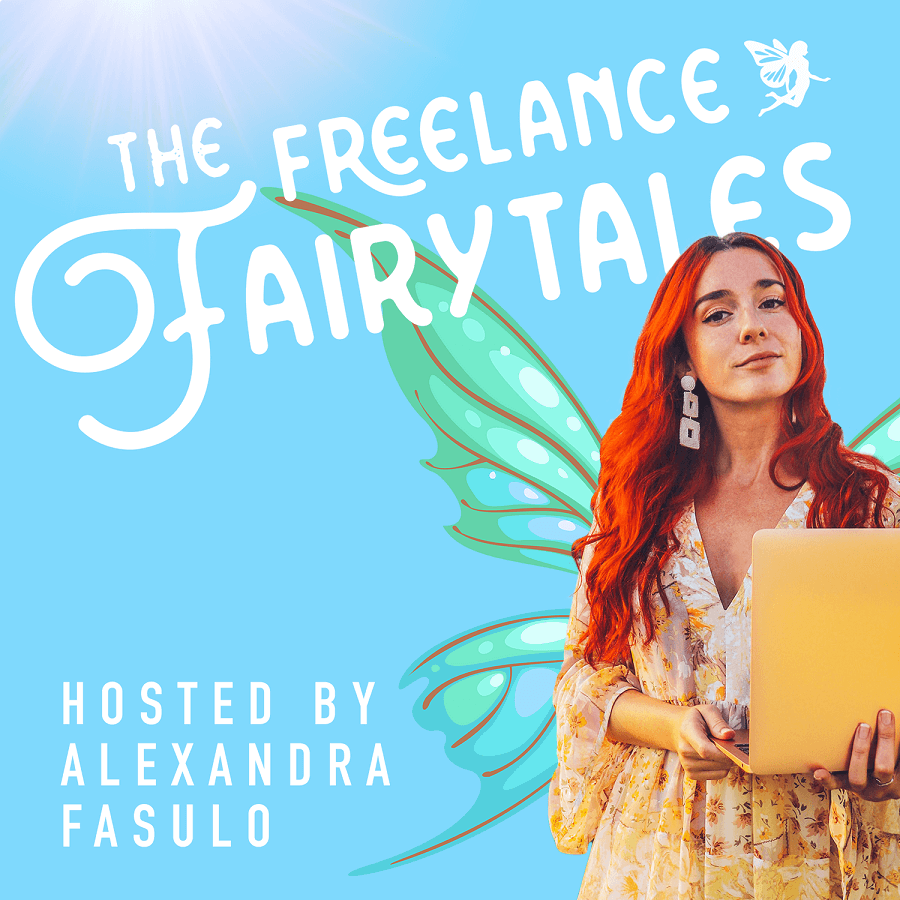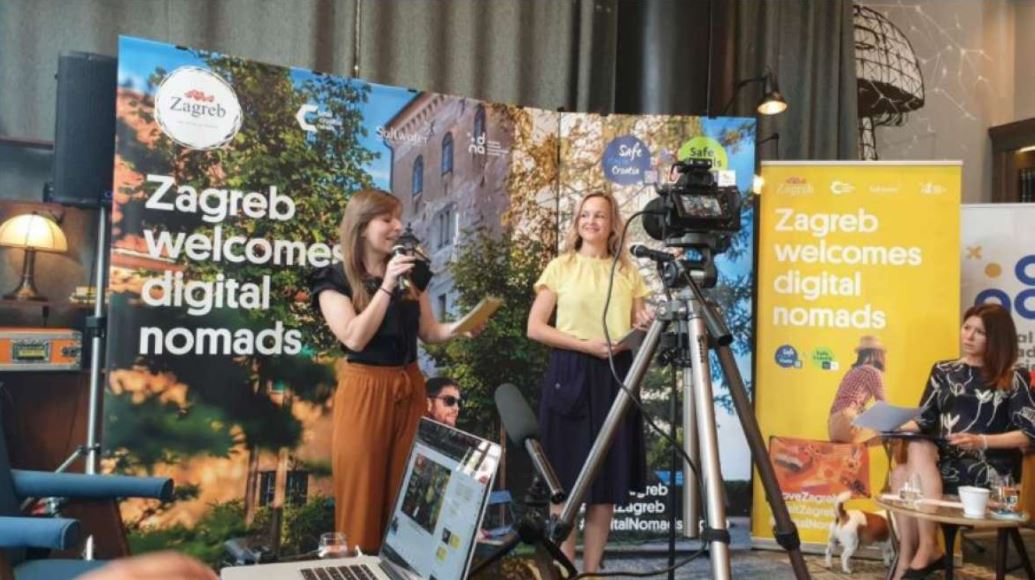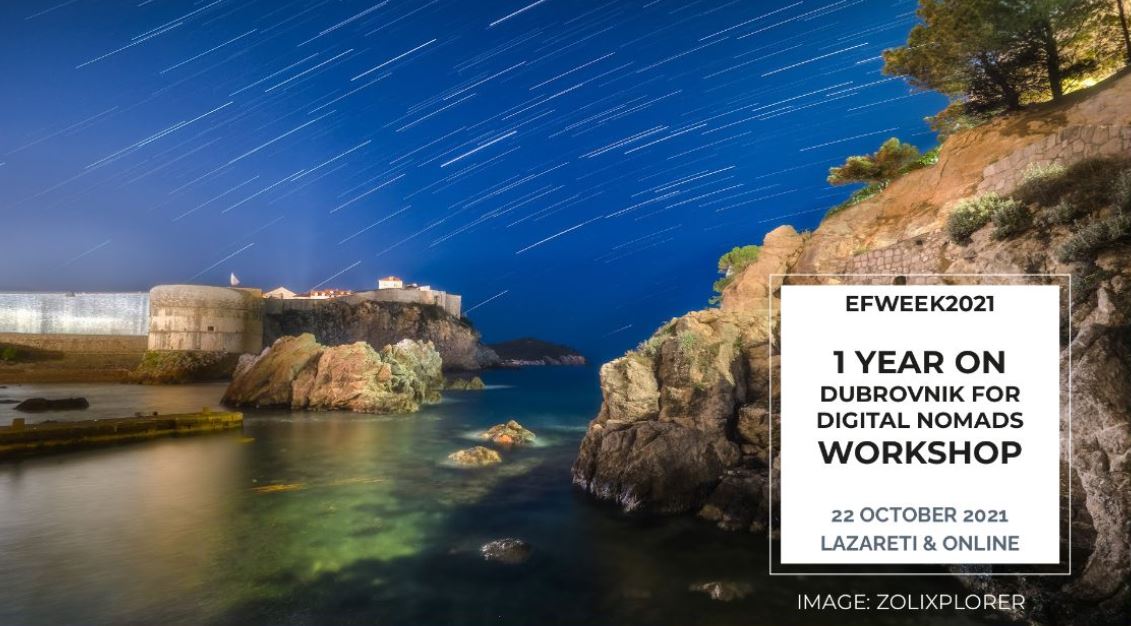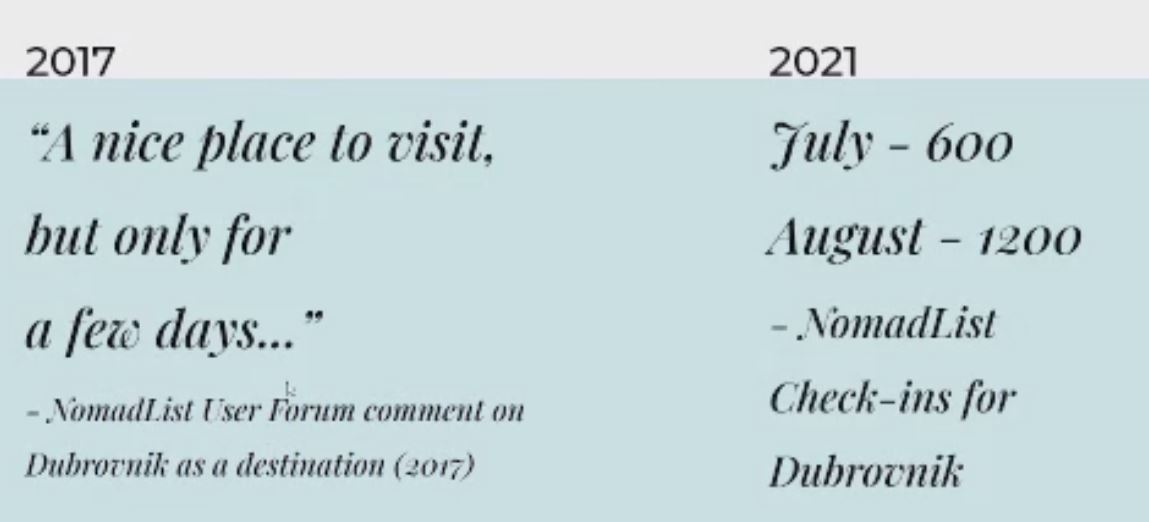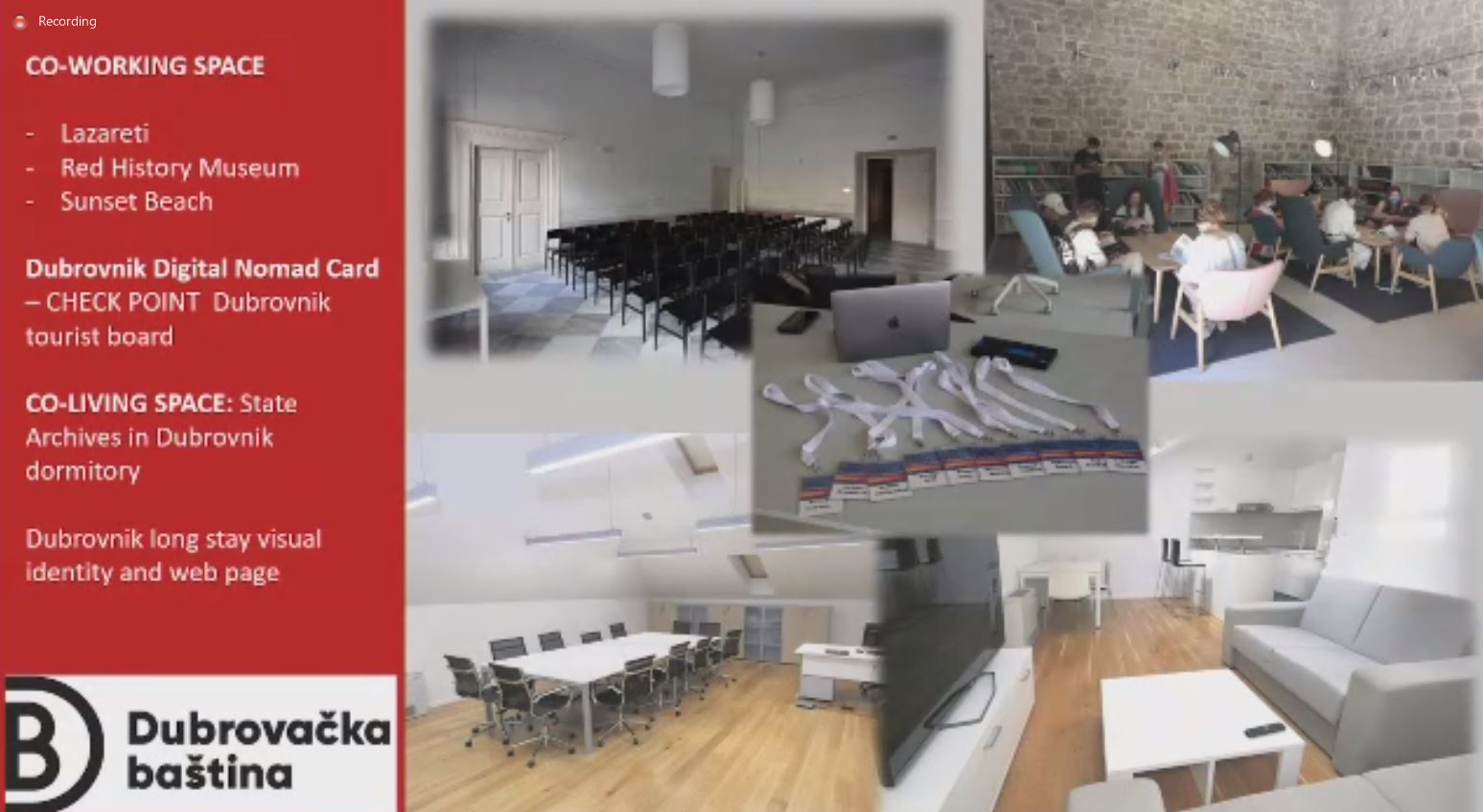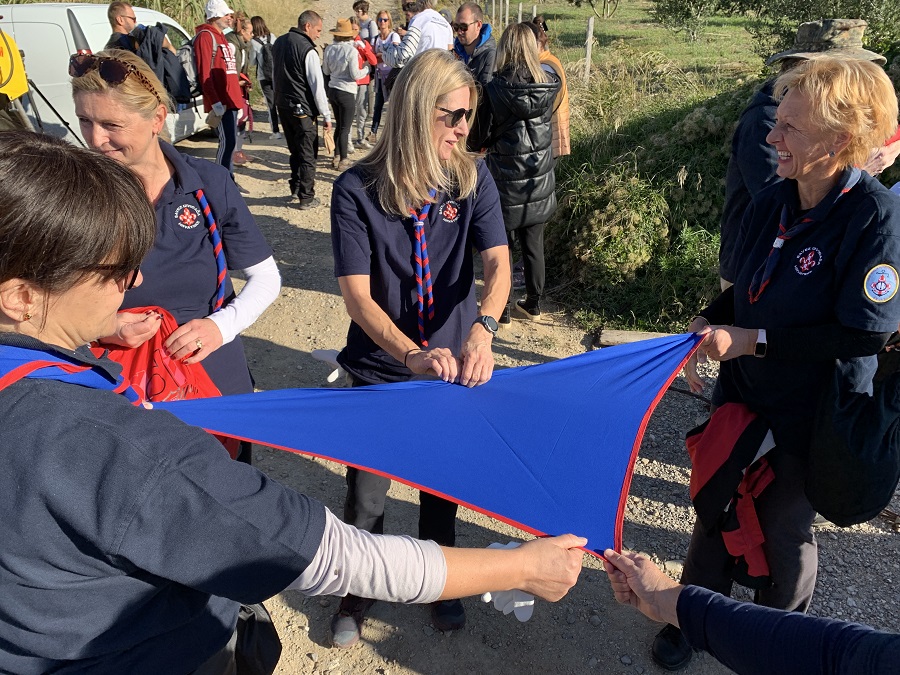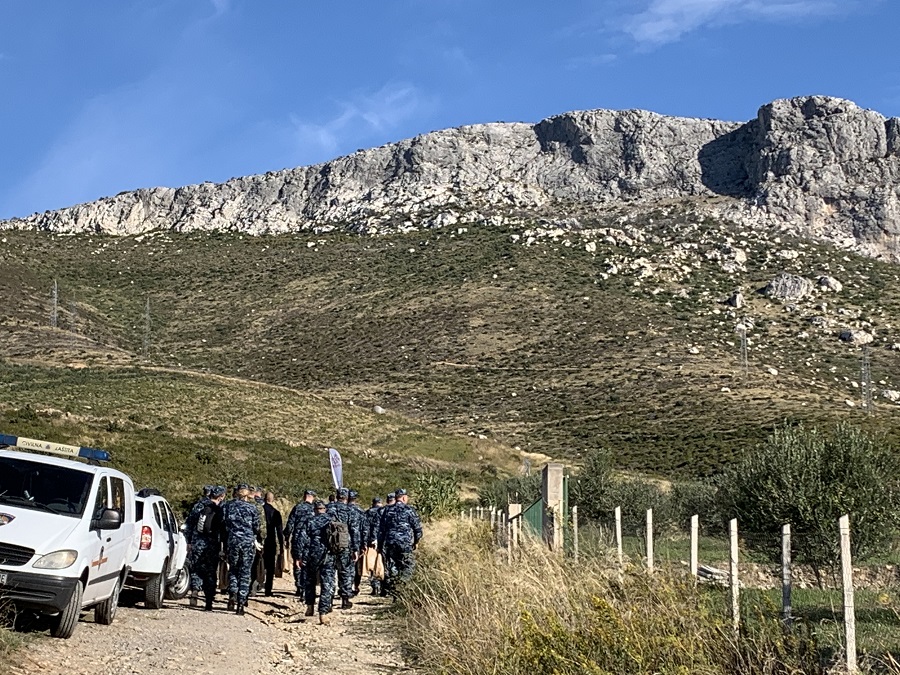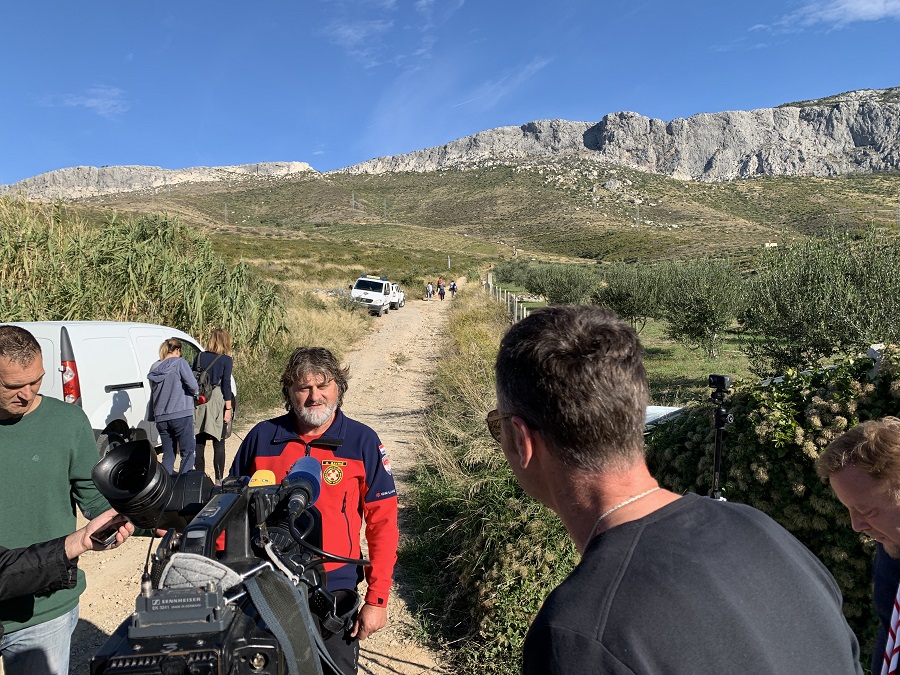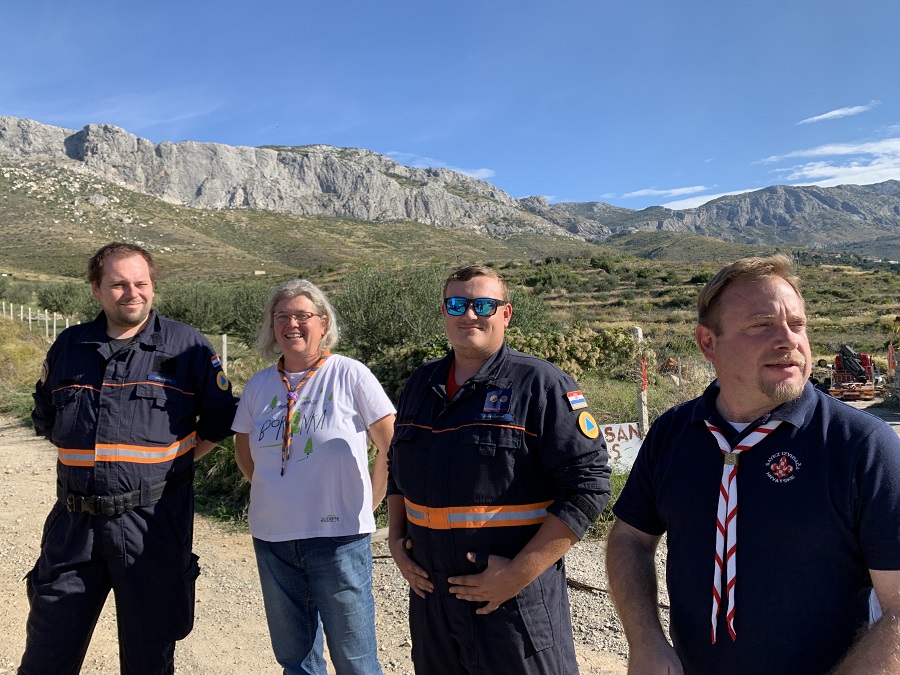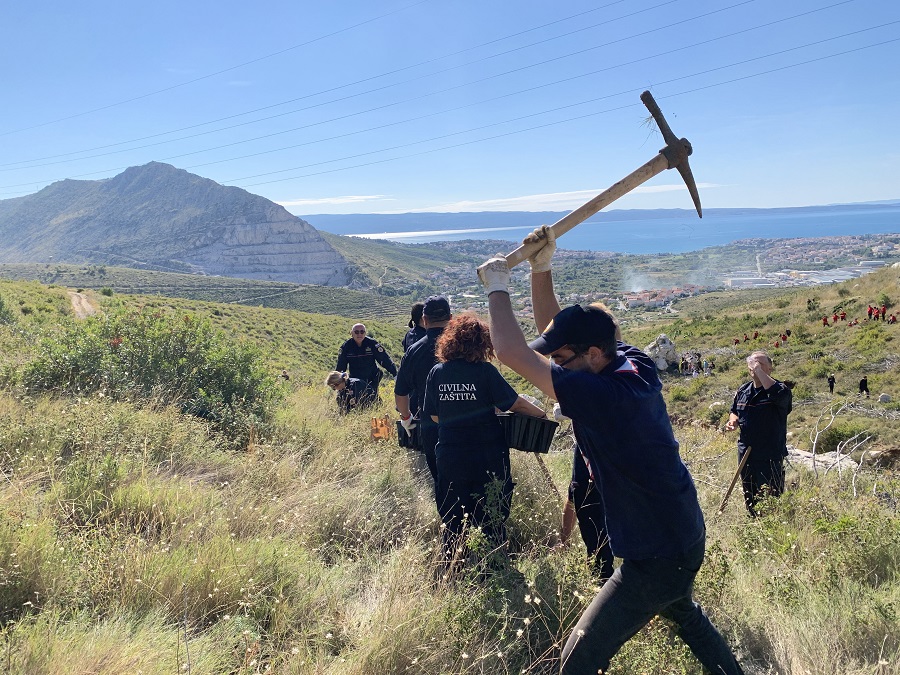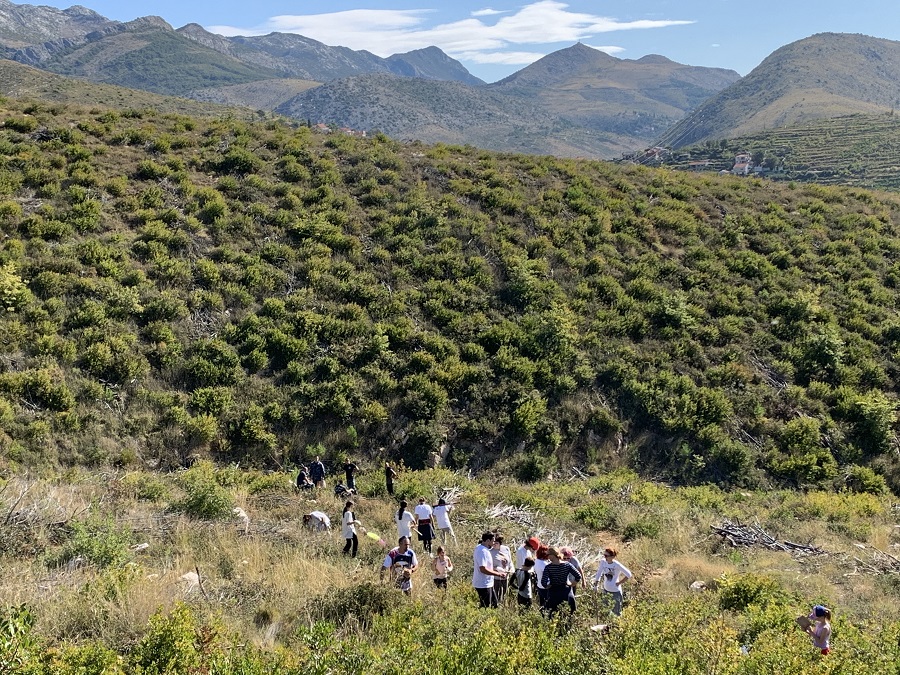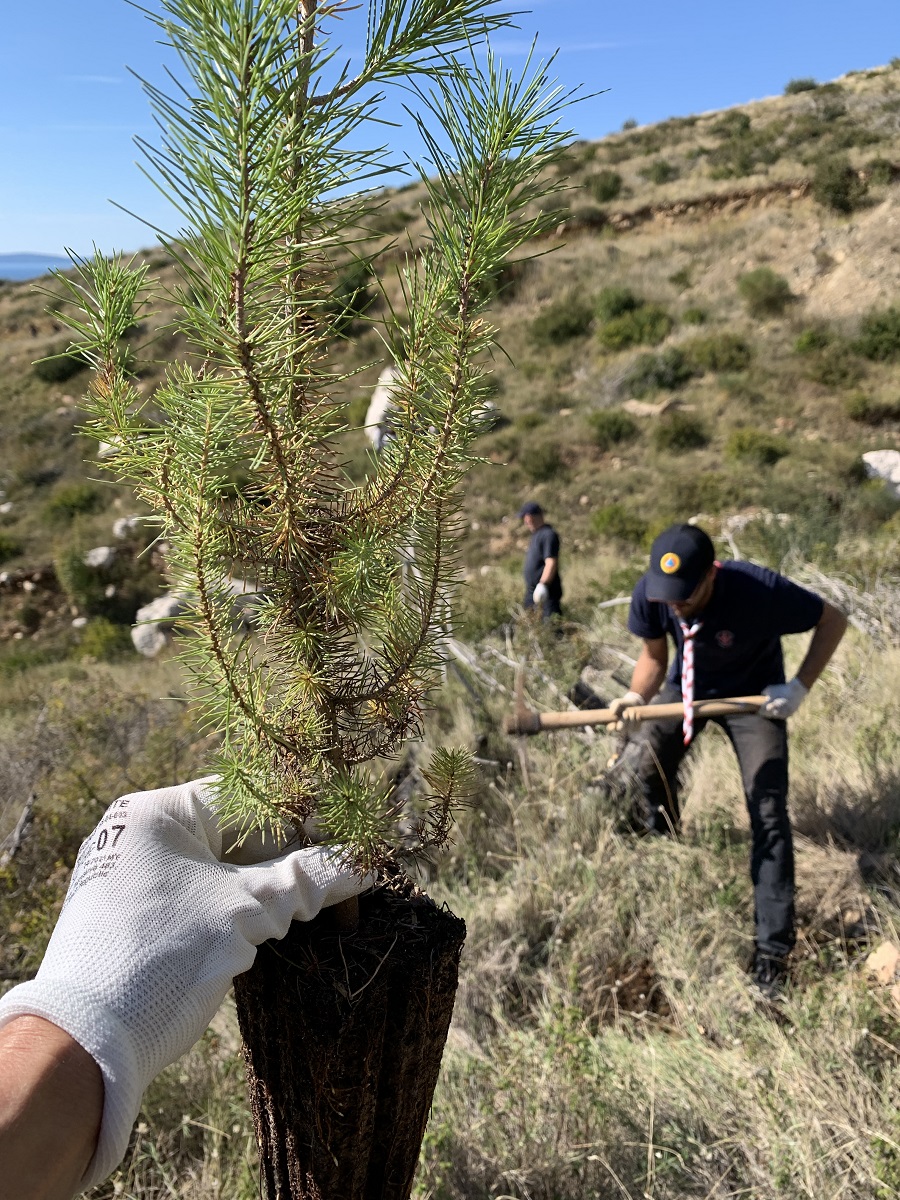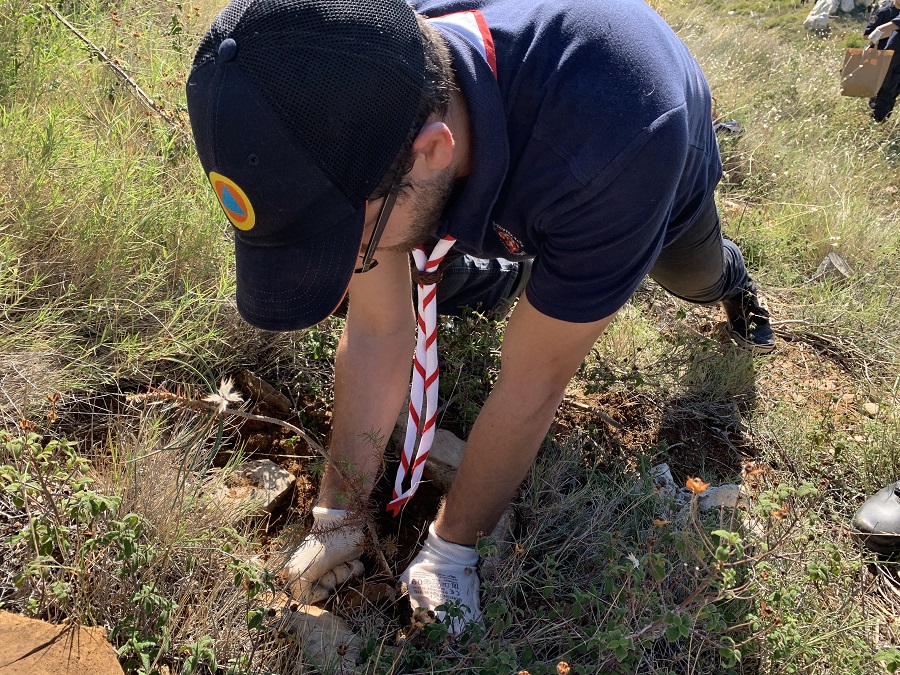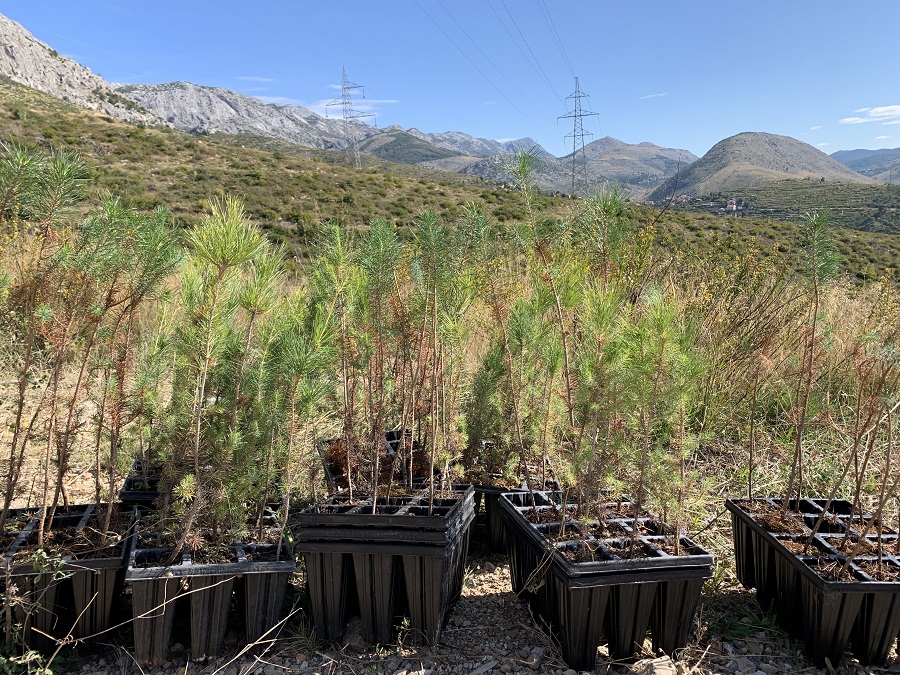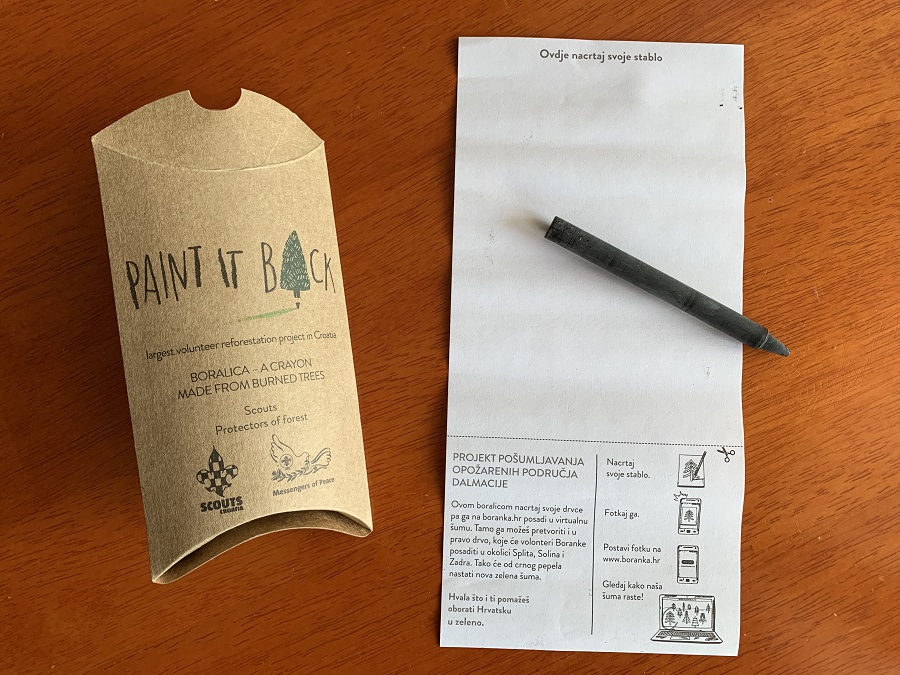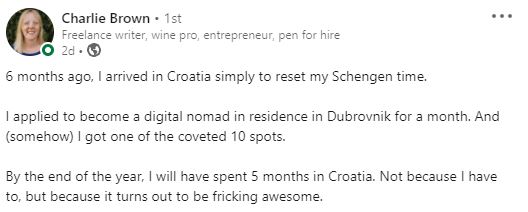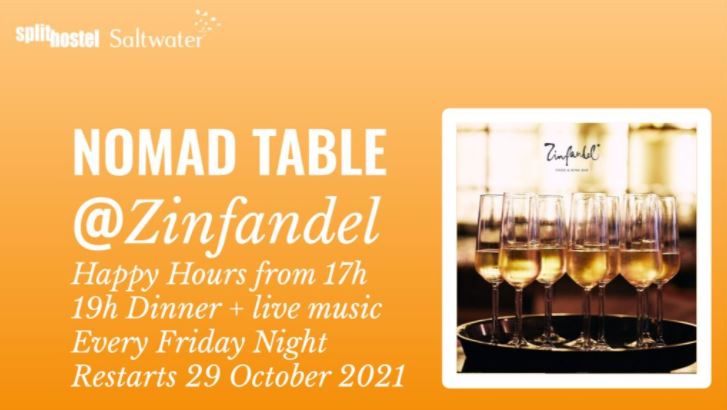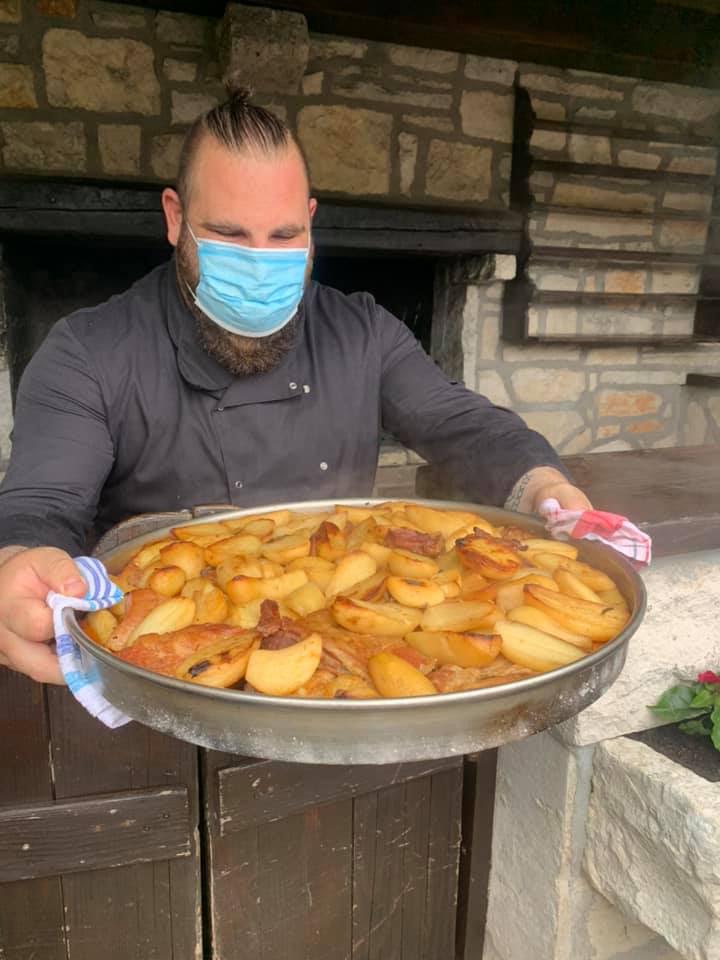Meet the Digital Nomad Week Speakers: Alex Fasulo, The Freelance Fairy
November 3, 2021 - Just over a month until Digital Nomad Week, the virtual edition with 10,000 nomads expected to attend, and more than 100 speakers including TCN. Continuing our look at the keynote speakers, meet the very dynamic Alex Fasulo.
In 2015, Alex Fasulo quit her job with no plan, no money, and no idea what she was going to do with her life. She dove headfirst into freelancing platform, Fiverr, and have never looked back.
Today, her freelancing businesses generates 350k+ in income per year, and she is using her experience to show everyone what's possible online today.
1. You are a keynote speaker at Digital Nomad Week in December. Tell us a little about DNW, why you decided to get involved, and what you will be talking about.
DNW reached out to me in early 2021 to be one of the keynote speakers for their festival this year, and I could not say no! As a fulltime nomad myself who has been bouncing around while managing multiple businesses for over 7-years, it simply made sense.
The title of my talk is: How Digital Nomads Rewrote the Rules for Work Around the World. I will be discussing how digital nomads became prominent thought-leaders in a COVID-19 world as a group of individuals who had already made virtual working work for themselves.
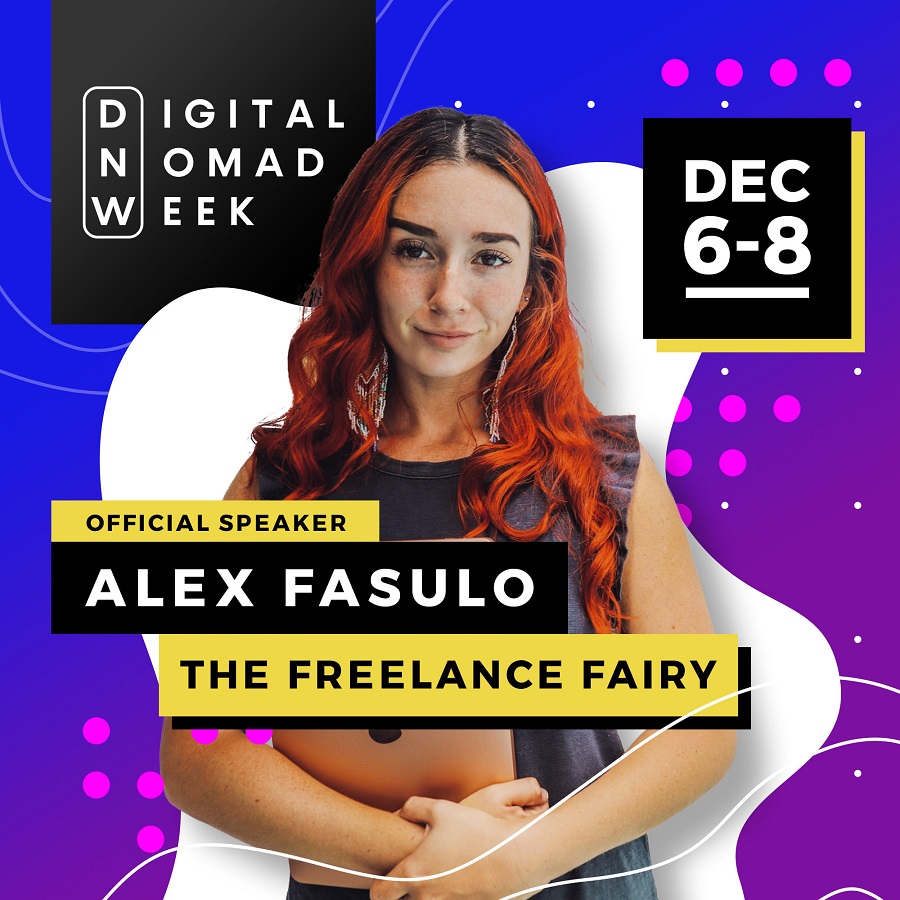
2. How does DNW rate on the nomad conference/festival calendar in your opinion in terms of size/importance?
I consider it to be one of the most important of the year - the roster of speakers they have gathered pretty much includes every single digital nomad driving conversation today. I am very excited to be part of it!
3. Reading your About page on your website is quite breathtaking. You seem to be doing about 400 jobs at the same time. How many hours a day do you work? And do you sleep?
I do sleep - sort of! I am a bad sleeper. I have been able to function on 5-hours of sleep or so since I was little- my mind never turns off.
I do admit I am bad at turning down opportunities - it's what it's all about to me. I work anywhere from 20-60 hours per week - depends the season! I do have a team now that includes my best friend and about 5 other independent contractors. I am NOT doing this alone anymore.
4. Your story and success are an inspiration to those who want to break the normal work cycle. What are the main pieces of advice you give to people wanting to make the leap but afraid to do so.
I would say to them: you only get one life. It's not meant to be miserable. Take a risk - it pays off. And it's not even a risk today! You can get started freelancing, for example, and it costs you NOTHING! In the past, people had to take out 50k business loans to work for themselves. You can start working on your own, for free. Do it, you won't regret it.
5. The pandemic put an increased focus on the potential of remote work, but the trend has been building for some time. Where do you think all this will be in 5 years?
I think every industry will be 100% remote. I understand industries like medical need some kind of medical location to function - but with telemedicine on the rise, I think we can virtualize just about every industry except for those few industries when we need to see someone in person. Remote work works for everyone... people are happier, more productive (studies have proven this), and they can travel all over. To be human is to travel and go outside, in my opinion.
6. I would like to ask you about Croatia, as that is my primary focus. I understand you have not visited yet, but it is on the list. When did Croatia first come on your radar as a DN destination?
It came onto my list in 2015 because of... Game of Thrones haha!!! I am a HUGEEE GOT nerd and have wanted to visit Croatia ever since the show came out. I actually went to North Ireland in 2018 specifically because of GOT. Of course, I know Croatia is also an incredible country with breathtaking views and robust history - I LOVE learning about history.
7. What is the perception of Croatia as a DN destination, and has it changed in the last 12 months? If yes, in what way?
I know Croatia is an affordable destination, which makes it an obvious DN spot. Nomads tend to live in places where they can save money or spend frugally so they don't have to worry about working 10+ hour days. The lifestyle is just as much as the job as a DN.
8. You are installed as the Croatian Minister of Tourism. What are the next steps you would implement to develop Croatia's DN strategy?
I would
1) Prioritize tax/business breaks and loopholes that make it easier for foreign nationals to extend their stay and operate their businesses from Croatia.
2) Launch short-term programs that provide incentives, like tax-free beverages (haha), to DNs for their first three-months in Croatia.
3) Spend lots of time on futuristic marketing using platforms like Reddit and TikTok to reach younger generations about the potential and history of Croatia.
You can learn more about Alex Fasulo on her official website.
To get your ticket for Digital Nomad Week, check out the event website.
For more news and features about digital nomads in Croatia, follow the dedicated TCN section.
Digital Nomad Week Keynote Nomadic Matt Talks Destination Croatia
October 31, 2021 - With 5 weeks to go until Digital Nomad Week, TCN continues its series interviewing the keynote speakers. Next up Matt Kepnes, aka Nomadic Matt, who recently visited Croatia.
I am really looking forward to speaking at Digital Nomad Week which starts on December 6. It is a great chance to share all the exciting progress taking place in the DN scene in Croatia. Of course, I am a complete unknown on the global nomad scene, so it helps when one of the most recognisble DN personalities happens to be speaking at the same conference.
And happened to think that Croatia is also pretty cool, even more so after a recent visit.
Nomadic Matt has been a nomad for some time and built a very successful business helping others travel more for less. A New York Times best-selling author of How to Travel the World on $50 a Day, as well as Ten Years a Nomad, it is safe to say that Nomadic Matt knows a thing or two about the remote work lifestyle. He kindly agreed to an email interview to share his thoughts predominantly about Croatia.
1. Digital nomad is a fairly recent buzzword that is catching on globally. You have been at this some time, and have written a book about your first nomadic decade, Ten Years a Nomad. How was being a nomad back then compared to today?
Being a nomad when I started traveling was much, much different than being a nomad today — for better and for worse. When I started, we could only communicate via Internat cafes so you had to rely on guidebooks and actually talk to people to learn new information.
Today, it's much easier thanks to the internet, apps like Google Maps and Google Translate, and sharing economy apps that can connect you to locals. There are significantly more cheap flights these days too. Those all open up so many new opportunities and make travel much more accessible (which is a big plus).
However, there are also lots of pitfalls. Travelers are all too often just sitting on their phones, ignoring the local culture around them in favor of connecting with people back home. People plan whirlwind trips to snap photos for the 'gram instead of actually soaking in each destination.
So things are better in many ways, but there are also a few pitfalls where we could improve as a community.
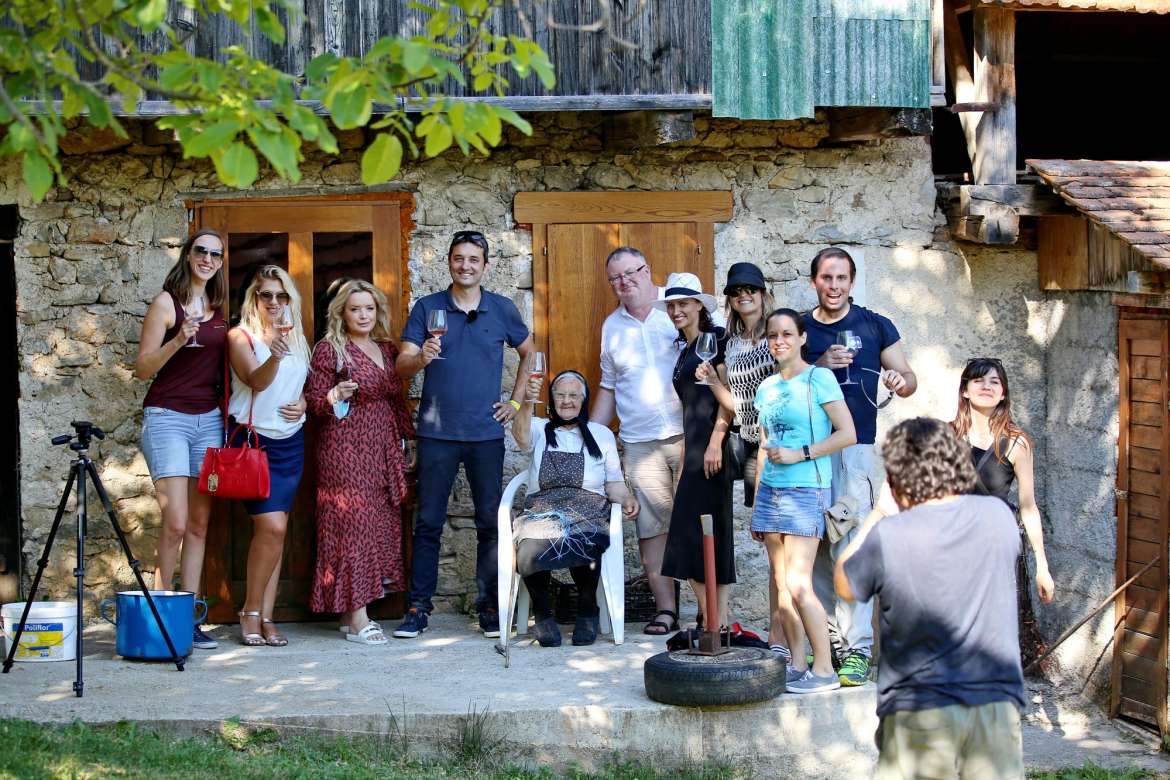
2. You recently visited Croatia and wrote an excellent article called Croatia is Underappreciated. Tell us in a couple of sentences why you think that?
Croatia is one of those destinations that sees a HUGE amount of tourists...but only to a few spots. So, while areas around Dubrovnik and Split might be super busy in the summer, once you get away from the coast, the country is virtually untouched.
We see this happen in lots of countries, as tourists tend to stick to the main highlights and rarely venture off the beaten path. Iceland and Thailand are two popular countries that also struggle with this same phenomenon. Which is all the more reason to get off the beaten path and explore away from the crowds!
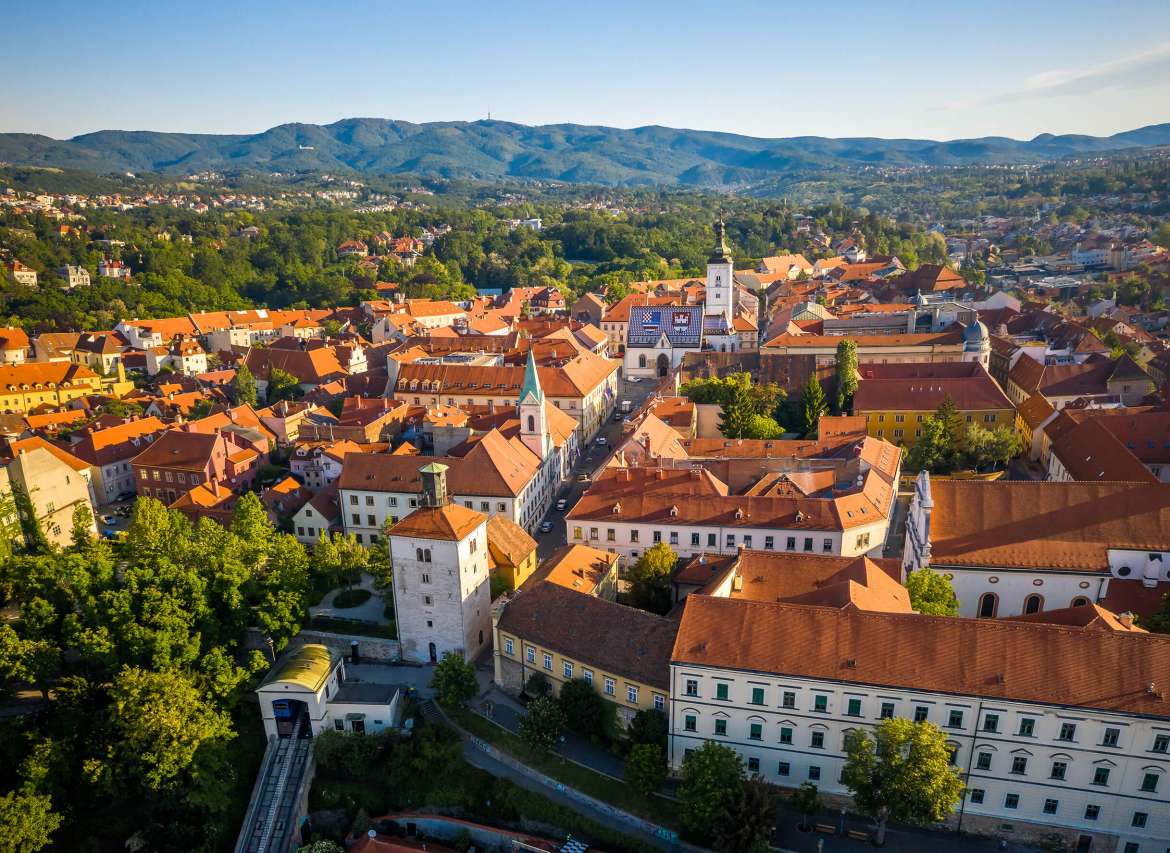
(Photo credit Zagreb Tourist Board)
3. You are an experienced traveller with great insights into the global DN scene. When did Croatia first come on your radar as a nomad destination, and how do you assess Croatia's progress in becoming more attractive to nomads over the last 12 months?
Croatia has actually been on my radar for a while. It's a hub for cheap flights, wild parties, and gorgeous weather — all of which are huge magnets to long-term travelers and digital nomads! But it wasn't until I recently re-visited the country that it really sank in just how great it is for digital nomads. Once I got back on the ground and got away from the coast, I was much more able to appreciate the pros of being a digital nomad here. I think it's only going to continue to grow and attract digital nomads.
4. A lot of nomads who came to Zagreb Digital Nomad Week were surprised at how much they liked the city and just how digital nomad-friendly it was. Indeed, keynote speaker Dean Kuchel said the only thing missing was more digital nomads. What was your impression of Zagreb from a DN perspective?
I loved Zagreb. It's an underrated city overshadowed by places like Dubrovnik and Split. While it may not have those stunning Dalmatian Coast views, the city has a lot to offer. It's fun, has excellent museums, it's way more affordable than Dubrovnik, and it's right next door to the most unexplored parts of the country. I think it makes for an excellent base for Digital Nomads (and it's also just a great destination to visit for regular travelers).
5. What are Croatia's comparative advantages in attracting digital nomads, and what are its weaknesses?
I think the main advantage in Croatia is the cost of living. Once you get away from the expensive coast, prices drop drastically. That's a huge advantage when competing for digital nomads. The country is also easy to navigate and has a reliable network of buses and ferries to get you anywhere you need to go on a budget, and there is an abundance of nature to see and explore whenever you need to get away from the computer.
You're also just a quick bus, train, or flight to elsewhere in Europe (and flights to/from here can be super cheap).
The downside is that prices are high (and rising) in the main tourist areas, and they get swamped by crowds so you can't really settle into nomad life there as you'd be shoulder to shoulder with visitors all summer. Fortunately, those tourist crowds are easy to escape!
6. You are temporarily installed as the Croatian Minister of Tourism with a brief to develop Croatia's DN strategy. What are the key next steps?
I would try to pivot tourism on the Dalmatian Coast to be more sustainable. I think limiting the number of cruises would be a huge start on that front. Cracking down on Airbnb would also help.
I'd also try to market other national parks/nature reserves to ease the number of visitors who crowd places like Krka and Plitvice Parks. Tons of tourists visit those places but skip much of the other nature. I think spreading those crowds out would improve the experience at those parks and also ensure they are around for future generations.
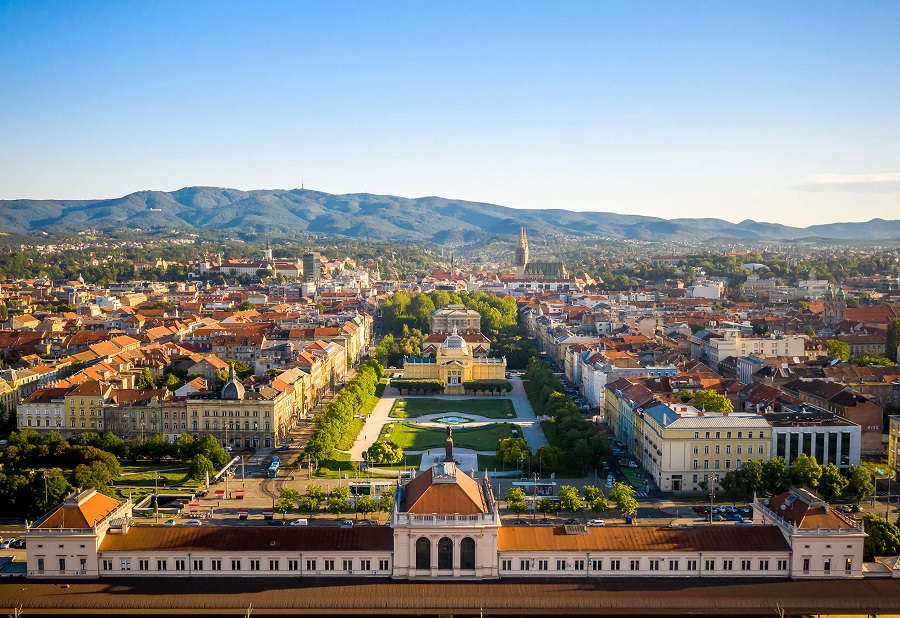
(Photo credit J. Duval/Zagreb Tourist Board)
7. And finally, what and where next for Nomadic Matt?
I'm actually in Oaxaca, Mexico right now, and I'll be heading to Brazil at the end of the year for New Year's. After that, who knows where I'll end up. That's the joy of being a digital nomad!
For more details about Digital Nomad Week, which kicks off on December 6, visit the official website.
For more news and features about digital nomads in Croatia, follow the dedicated TCN section.
Meet Rax Suen, Zagreb Digital Nomad Ambassador for November
October 31, 2021 - Zagreb Digital Nomad Ambassador number 5 has arrived, as Singaporean Rax Suen takes up residence in the Croatian capital.
It is a measure of how this new breed of remote worker is a little different to my generation when November's Zagreb Digital Nomad Ambassador Rax Suen explained one of the reasons he had applied for the position.
"It was on my way home," Rax explained at last night's meetup at Canopy by Hilton.
'Home' being Singapore, and his starting point being Buenos Aires. It is all about perspective, I guess...
Rax is the fifth ambassador in the 6-month program, and the first from Asia. So far, ambassadors have come from the USA (with partner from Zimbabwe), Israel, and two from South Africa. The project, an extension of the award-winning Zagreb Digital Nomad Week, is a collaboration between Zagreb Tourist Board, Saltwater Nomads, Doma Zagreb Aparthotel, and Total Croatia News.
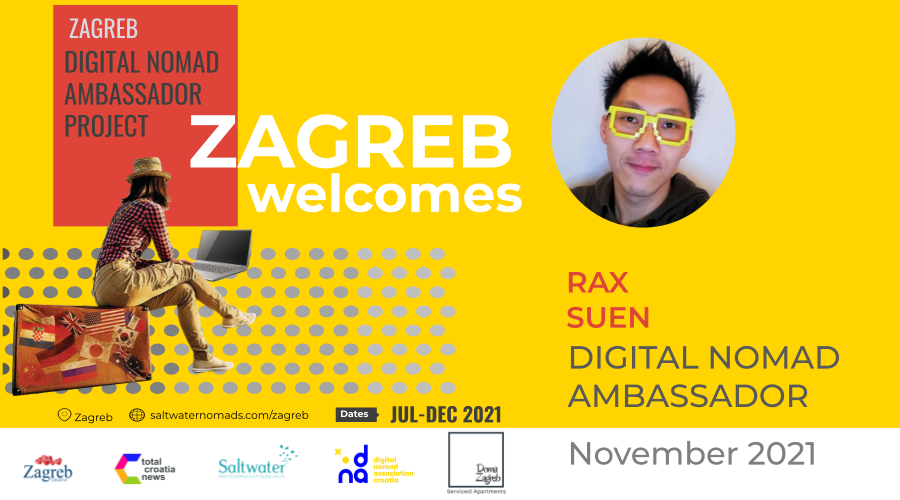
Rax arrived last night from Split and was immediately put to work, introducing himself at the farewell event of this month's ambassador, Andrae Smith from South Africa, at a travel pitch and meet up event at Canopy.
Among other things, Rax runs Nomads Unveiled, which he describes as follows:
This is a resource platform where I share and collate travel and remote working/business tips in the pursuit of geographical, financial and emotional freedom. For over a decade, I have traveled to over 50 countries - from a budget backpacker to a business traveler, expat and then a digital nomad. You can find insights and perspectives from myself and other world travelers that will hopefully help inspire your journey of discovery.
"The world is larger than one can fathom, the world is larger than just the geographical aspects of it." -Rax
You can see Rax's application video for the program above, as well as an arrival interview for TCN last night during the Zagreb meetup.
If you would like to connect with Rax while he is in Zagreb, or follow him on social media, you can do so here.
For more news and views about digital nomads in Croatia, follow the dedicated TCN section.
Zagreb Digital Nomad Ambassador Andrae Smith Reflects on Month in Croatian Capital
October 31, 2021 - A diplomatic handover last night, as outgoing Zagreb Digital Nomad Ambassador Andrae Smith handed over the role to Rax Suen of Singapore at Canopy by Hilton.
An entertaining evening of networking and travel stories at Canpy by Hilton in Zagreb last night, as October's Zagreb Digital Nomad Ambassador Andrae Smith hosted an evening of scary and funny travel stories as she said farewell to Zagreb after a month in the role.
The ambassador program is a continuation of the award-winning Zagreb Digital Nomad Week, where one ambassador spends a calendar month in the Croatian capital, working to develop the city's digital nomad strategy. The project is a collaboraiton beetween Zagreb Tourist Board, Saltwater Nomads, Doma Zagreb Aparthotel, and Total Croatia News.
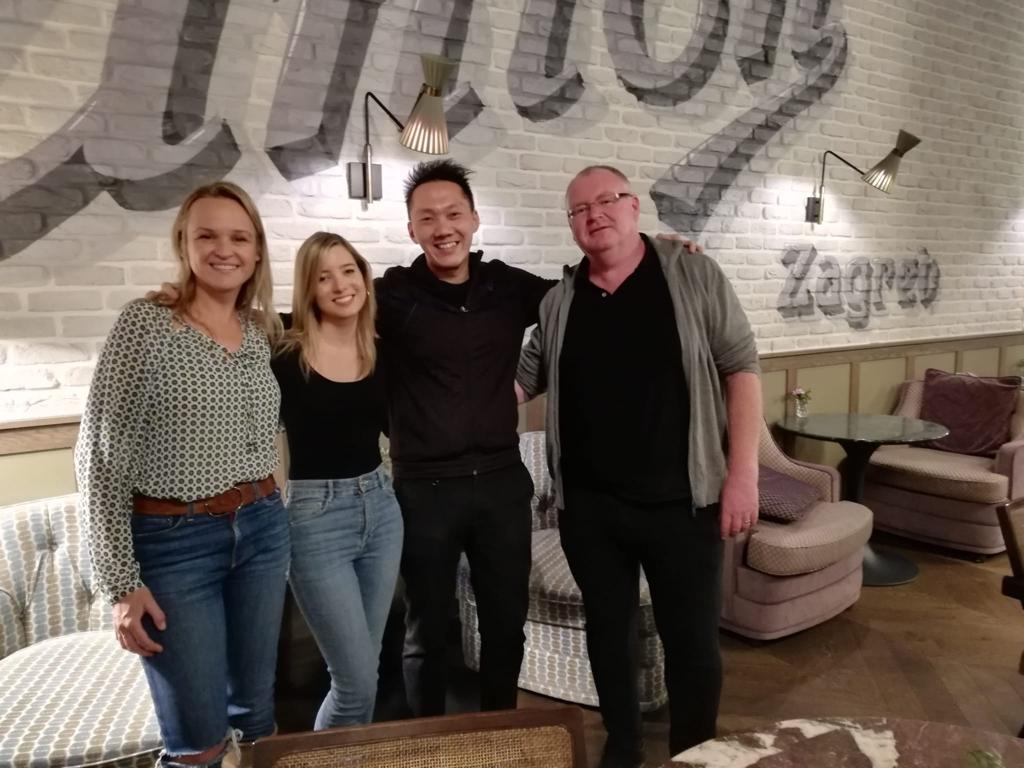
(Saltwater Nomads CEO Tanja Polegubic, Andrae Smith, Rax Suen, and TCN's Paul Bradbury at last night's event at Canopy by Hilton in Zagreb).
Last night's event was also an opportunity to meet the next ambassador. Rax Suen jetted in from Argentina and will take up residence at Doma Zagreb Aparthotel tomorrow.
Both contributed to the event with their scary, funny and embarrassing stories, and I think it is fair to say that Andrae's account of answering the call of nature in the Australian bush will live long in the memory of all those who heard it.
Andrae took some time out to share her thoughts on the month in Zagreb with TCN in the video below.
It appears that we will be welcoming her back soon, as she has decided to add Croatia to the list of destinations where she offers her tailor-made digital nomad retreats. You can learn more on her Work Wanderers website.
We will be publishing the welcome interview with Rax shortly.
For more news and features about digital nomads in Croatia, follow the dedicated TCN section.
Meet Olumide Gbenro, Founder of Digital Nomad Week
October 25, 2021 - It has been a busy 12 months for the Croatian digital nomad story, but there is plenty happening elsewhere in the world. Having been invited to speak at the inaugural Digital Nomad World conference from December 6-8, TCN caught up with owner and organiser ,Olumide Gbenro in Bali.
The global digital nomad story is gathering pace, and all (some 10,000 pairs) will be on Digital Nomad Week 2021 in early December, when 100 speakers will be addressing some 10,000 virtual attendees from over 120 countries.

Croatia will have a strong presence from the private sector, with several key figures from the incredible progress over the last 18 months all among the 100 conference speakers. Confirmed so far with a Croatian angle are Jan de Jong, the President of the Digital Nomad Association Croatia and the catalyst for the Croatian digital nomad permit. American Steve Tsentserensky, only the 7th recipient of the permit and a regular conference speaker and viral video maker. Israeli Nimrod Dean Kuchel was a keynote speaker at Zagreb Digital Nomad Week who seemed to have left his heart in the Croatian capital when he took up his post as the Zagreb Digital Nomad Ambassador for September. German Andreas Wil Gerdes who has been advocating remote work strategies for Croatia for some time. And on a personal level, I was delighted to be given the chance to present Croatia's story from the TCN perspective, having covered the subject for more than two years.
Time to get out of our Croatian bubble and meet the man behind this global event and find out more about it.

Olumide Gbenro is a digital nomad pioneer based in Bali, Indonesia who has hosted community events serving 10,000+ digital nomads from around the world over the last 5 years. He is Founder of Digital Nomad Week, Digital Nomad Summit, Digital Nomad Islands, and Digital Nomad Festival.
His work has been covered in prominent publications like Forbes, Entrepreneur, and Business Insider for advocating for digital nomad visas and his continuing work to create sustainable global citizens that give back to the local communities.
Today he is helping governments, cities and organizations attract digital nomads and become better prepared for the future of remote work, today.
1. Digital Nomad Week. Run from Bali but fully remote. 10,000 attendees, 100 speakers, 120 countries. It sounds amazing. Tell us a little bit about the event first, and how you got started.
In 2020 we were supposed to have our first summit in-person in Bali, Indonesia, but due to Covid we had to postpone it. Instead we pivoted into a virtual summit and it was a blessing in disguise because we saw about 1,000 attendees from around the world. This showed me the strong signal I needed to continue creating virtual events for high level networking, learning and socializing for the digital nomad community around the world.
2. Who is the event aimed at?
We are aiming at both newbies to the remote work world and also experienced leaders who have already achieved complete freedom. There is something for everyone, from our panels with famous digital nomads like Matt Kepnes “Nomadic Matt” and the legendary Rolf Potts, Kristen Wilson, and Gonçalo Hall, founder of the world’s first digital nomad village, the best of the best will be in the (virtual) rooms discussing the future of our population. We also have a mastermind with 6, and 7 figure nomads sharing their latest knowledge on how to achieve complete financial freedom.
3. Where does Digital Nomad Week rank in terms of global DN conferences?
I really think we’re the best, and I’m not just saying that. No one has ever put together such a formidable lineup of remote work leaders and this is just the start. Next year I will present both a physical Digital Nomad Summit and a massive Digital Nomad Festival later in 2022.
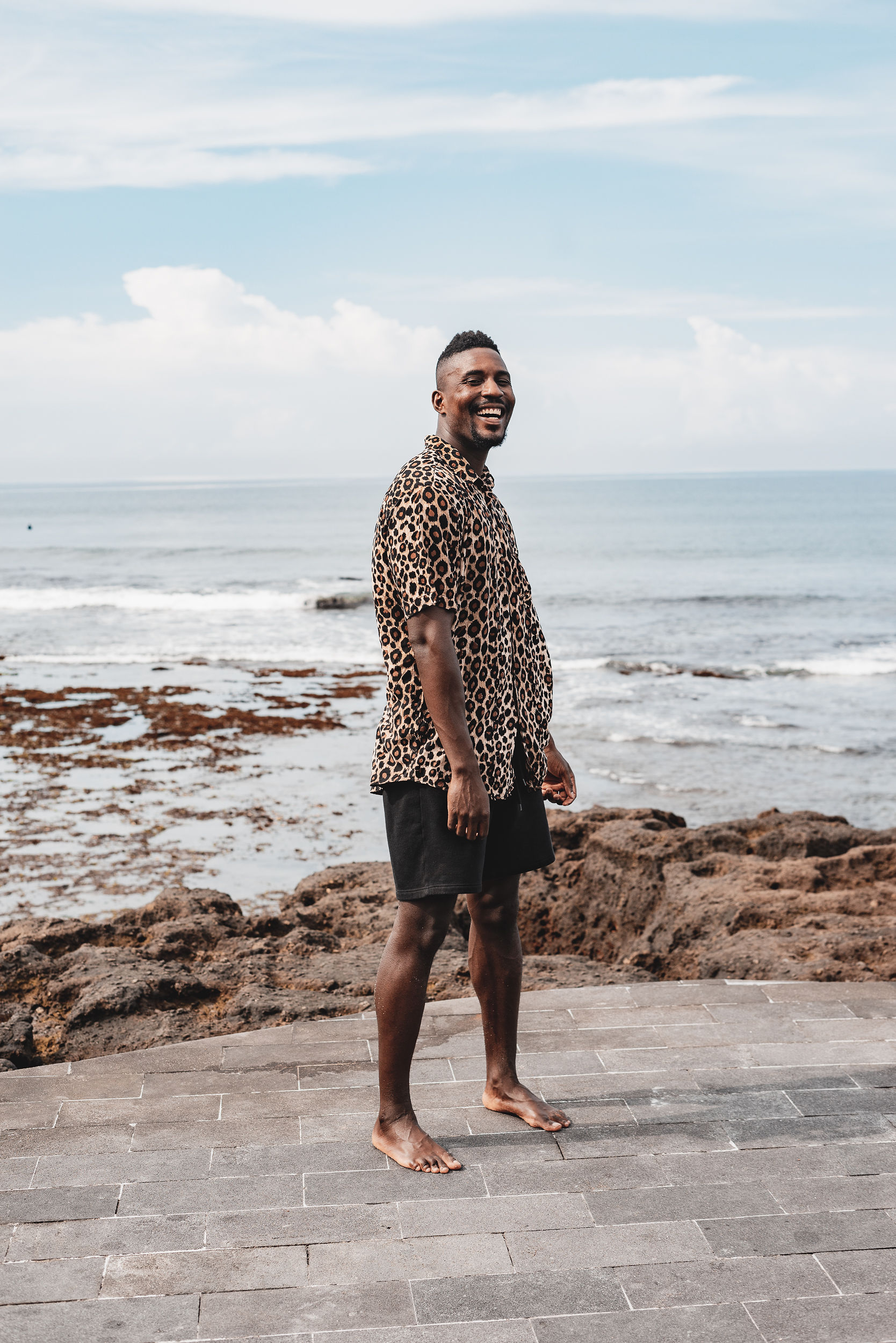
4. What are your hopes and expectations from this year's conference?
My real hope is that people find a new home, a place where they can not just get high level learning but also meet new business partners, learn about up and coming digital nomad hubs and also perhaps develop a skill that helps them generate their first or next six figure online business.
5. You have been a top remote work influencer for some time. How do you see the pattern of change, particularly due to the pandemic?
I think the pandemic has helped even the savvy remote work leaders decide on lifestyle design they desire to live and to adjust fast. Meaning I choose where I live depending on the rules set forward by the governments in the region that I live. I know so many that left Bali when things became more unstable to go to Mexico. I think in the coming years we will all stay longer in destinations depending on the benefits offered by local governments but we’ll also be much more active with local people and communities to give them more of our time, money and attention. Long gone are the days where you hop from country to country every 2 weeks, it’s just not practical anymore.
6. Bali has been a remote work capital for a number of years. What is the situation now - are things returning back to normal?
Things are finally starting to return very slowly but I believe it will return sooner than predicted. Although many have been critical of the response of the Indonesian government I believe they are doing the best they can and with the new law allowing vaccinated people to enter I can see a big bounce back of tourism once the 5-day quarantine is removed. I have already noticed so much more traffic in the popular area of Canggu, Bali.
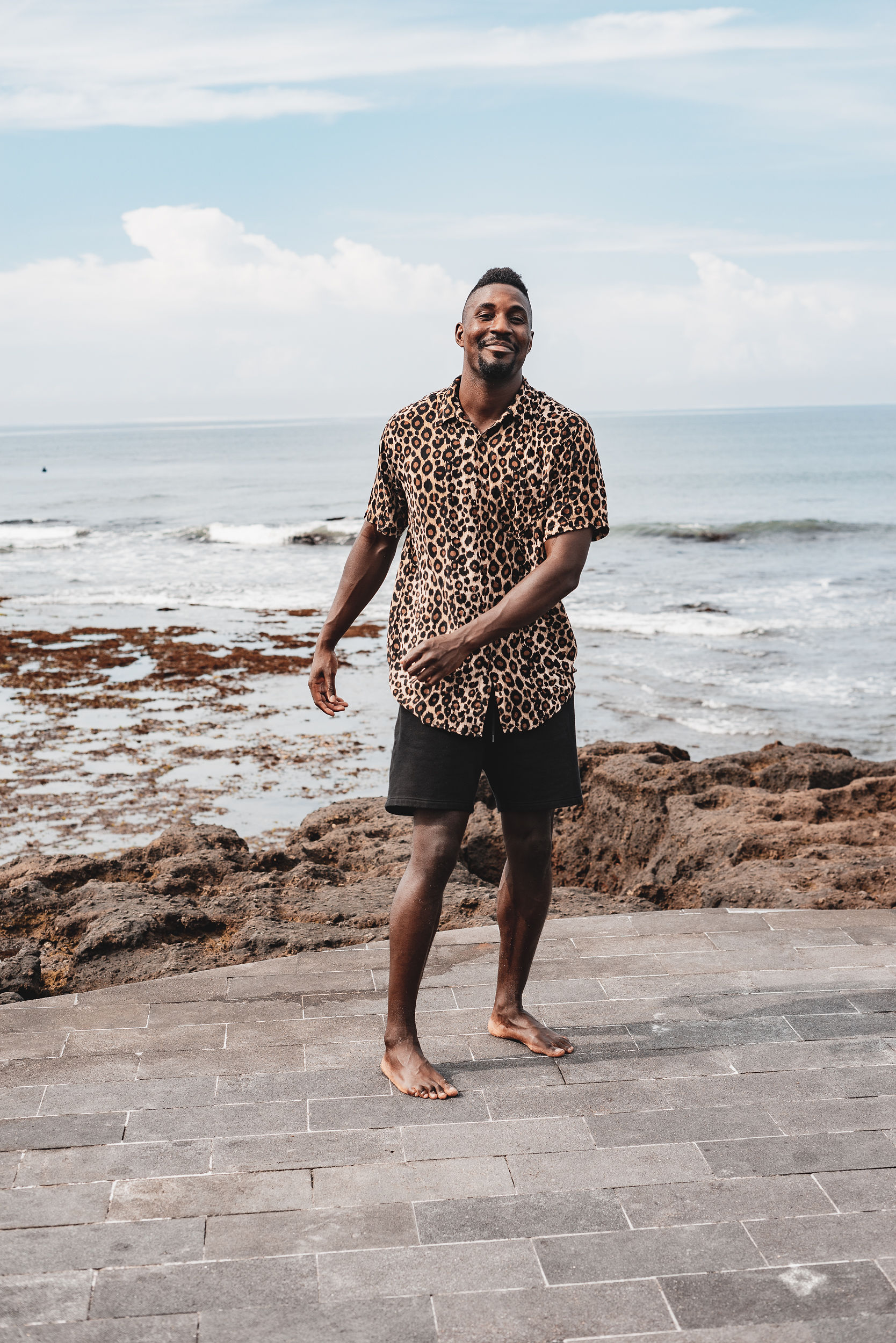
7. Can we talk a little about Croatia, as that is my primary focus? Your observations on the DN story in Croatia, looking from distance and with your experience on how Croatia is doing on its DN path?
I think from a distance I see the massive efforts Croatia is making. You’ve brought on passionate ambassadors and it’s clear you are putting in a major effort for the community. I know you have critics so my advice is to prove them wrong. Show the community at large you care and all will be well.
8. What should be the key areas of focus for Croatia as part of next steps?
I think you need people dedicated to staying long term. Find 3-5 new and excited faces who wear “digital nomad” on their sleeve and let them have the remote control. Host events that allow people to socialize and have fun, it’s not all about being serious all the time and I’ve found my best business deals have come from informal relationships.
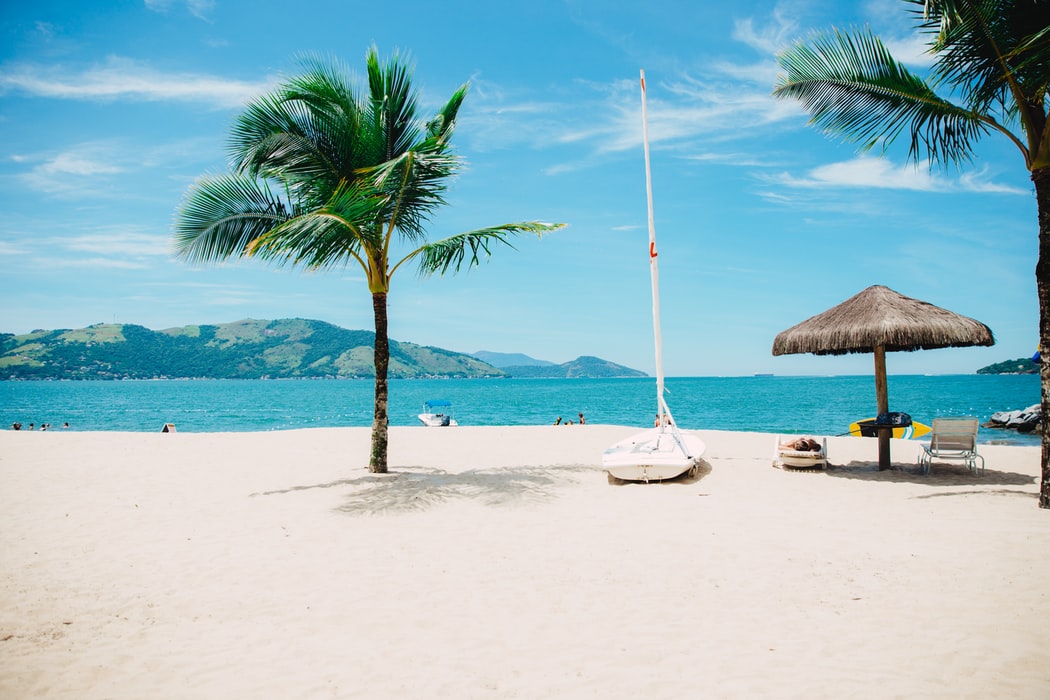
9. And finally, what's next for Olumide Gbenro after Digital Nomad Week?
I now own the domains for Digital Nomad Summit, Digital Nomad Week, Digital Nomad Festival as well as their trademarks. I plan to expand from Bali to other hubs to host the worlds top events. I want to partner with other leaders, this isn’t a competition I don’t believe in that and I welcome the partnership of leaders and local governments who have a genuine heart for our population.
For more information about Digital Nomad Week, and to register, visit the official website.
For the latest news and features about digital nomads in Croatia, visit the dedicated TCN section.
From Istria to Podgorica, 'Digitalni Nomadi' Entering Mainstream Media
October 23, 2021 - Unheard of a year ago, the term 'digitalni nomadi' is taking up an increasing number of column inches, not only in Croatia, but also in the wider region.
18 months ago, few people in Croatia were aware of the term 'digital nomad'. If the Croatian equivalent - digitalni nomadi - even existed is debatable, but if it did then it was used even less.
A lot has changed in the last 18 months regarding the digital nomad revolution. The introduction of a DN permit, conferences such as Zagreb Digital Nomad Week and Dubrovnik for Digital Nomads, the opening of the first co-living community in Zadar, the development of the community, and the expansion of the eco-system in the region, with significant Croatian input into the new digital nomad permit for Montenegro, as well as the Cross Border Coworking Conference.
And also something a lot more understated which shows the effect that the digital nomad initiative is having on the local population.
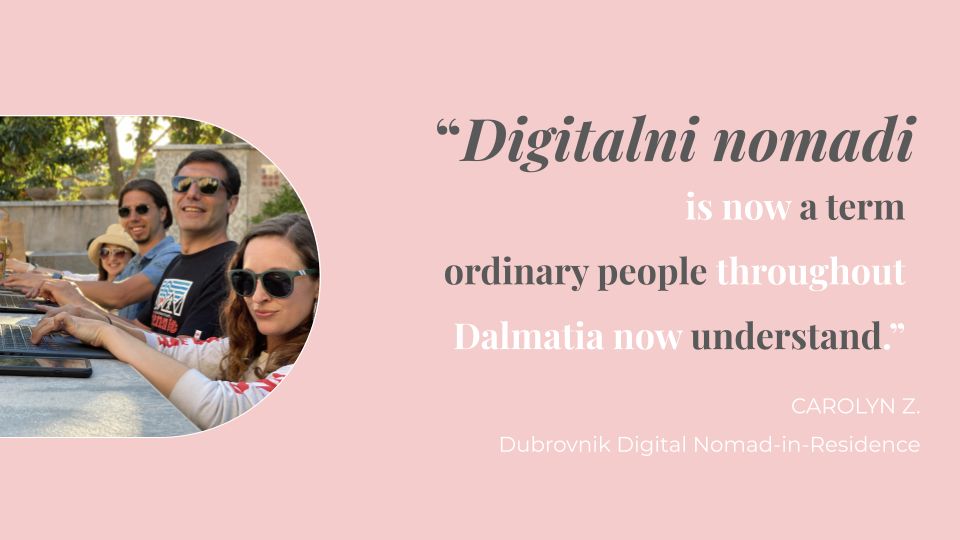
(Photo credit - Saltwater Nomads/Zoltan Nagy)
A very perceptive insight from one of the 10 Dubrovnik Digital Nomads-in-Residence pointed out something quite significant. The term 'digitalni nomadi' was now a term that was understood by many people in Croatia. Indeed, the term 'digitalni nomadi' can be heard with increasing frequency in the cafes of Croatia.
Yesterday was a year since the first-ever digital nomad conference in Croatia, Dubrovnik for Digital Nomads, and it was marked by a workshop called '1 Year On Dubrovnik for Digital Nomads Workshop', held at Lazareti.
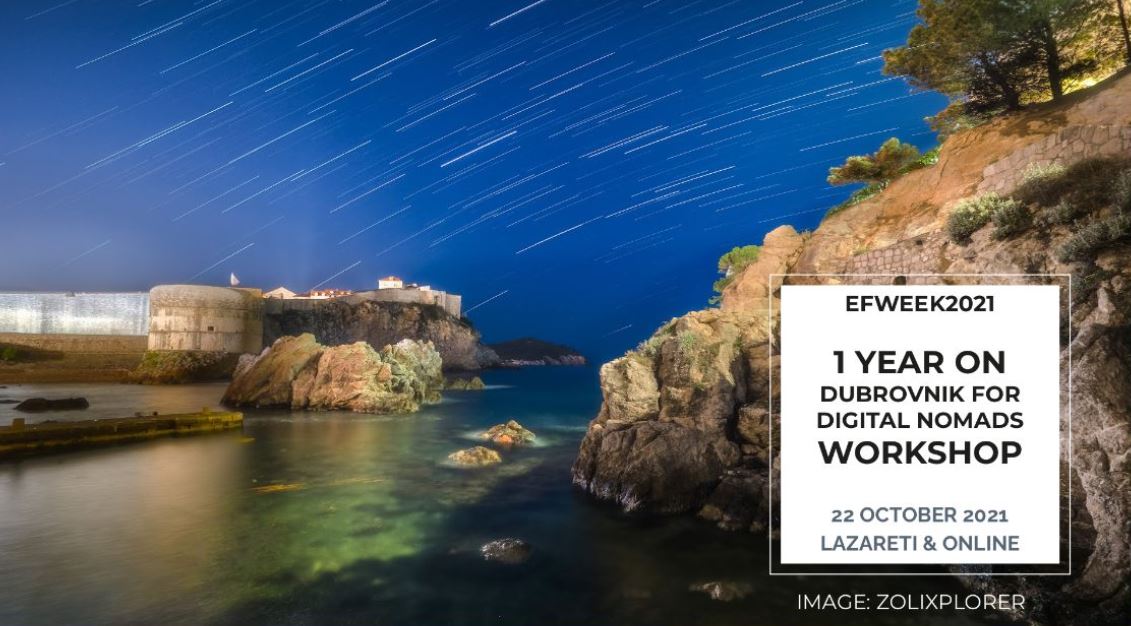
It was quite a workshop, as Dubrovnik Tourist Board director announced no less than 3 co-working spaces, a co-living space, a DN info point, and what is believed to be the world's first destination digital nomad card. You can learn more in Beyond the Walls: DN-i-R Presents Sustainable Dubrovnik Tourism Direction.
Last night, I was curious to see what coverage the event had generated, and so I googled 'digitalni nomadi' for an overview. And I smiled when I saw the results, another benchmark of the progress that has been made.
There was reasonable coverage of the Dubrovnik event, but that was not what made me smile. In recent days, there were as many as EIGHT news stories - all different - about digital nomad tourism, from the Istrian peninsula to the capital of Montenegro, via Bosnia and Hercegovina. What started in this region as a local Croatian initiative is already transcending borders. This is excellent news, as a collaborative region will attract more nomads, and for longer.
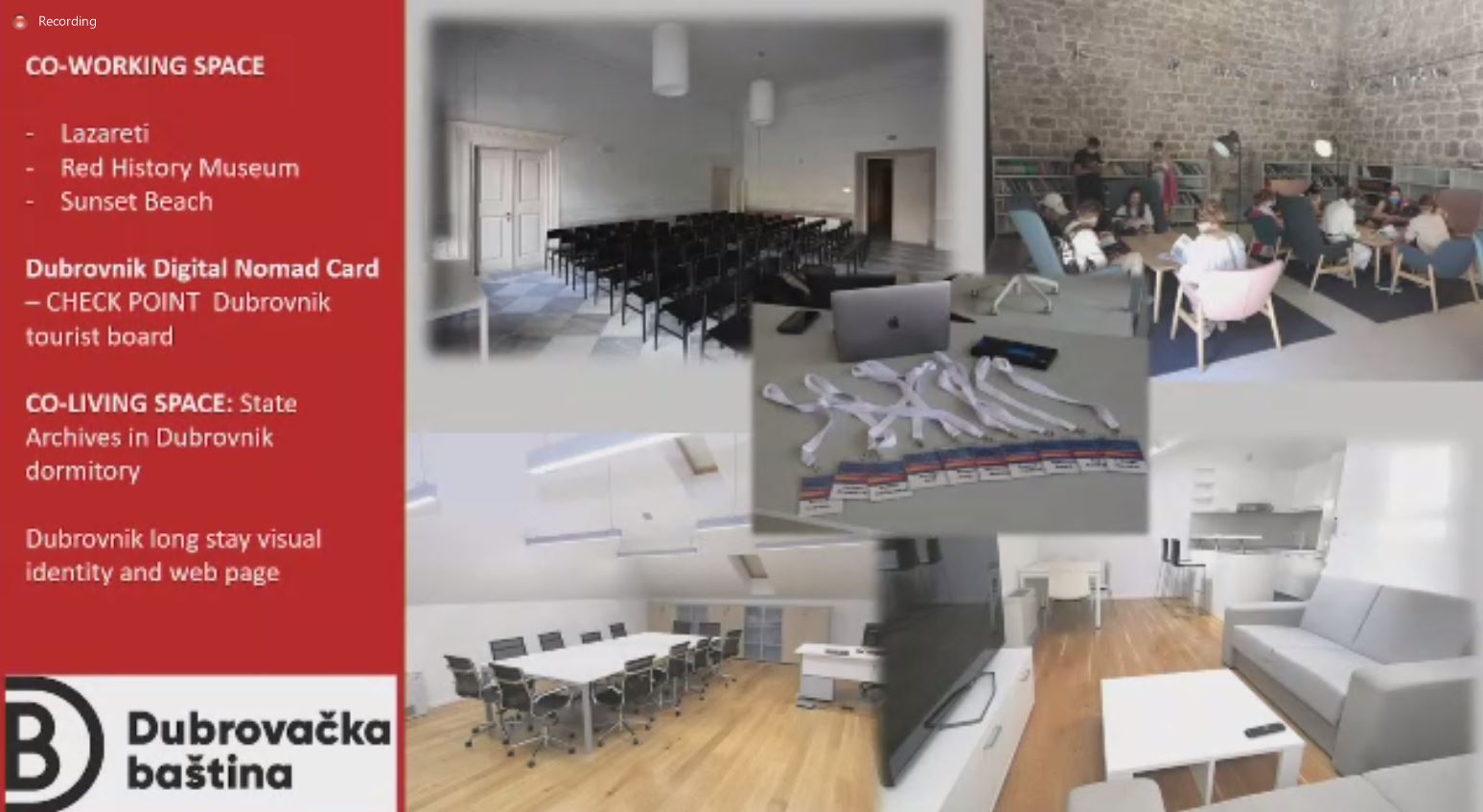
Here is an overview of the 'digitalni nomadi' stories which are making the local and regional news in recent days:
Digital nomads are increasingly attracted to Bosnia and Hercegovina (raport.ba)
Over 5,000 accommodation listings on the new DNA Stay (an initiative from the Digital Nomad Association Croatia) (poslovni.hr)
Istria is becoming a Mecca for digital nomads (glasistre.hr)
Zagreb in top 5 most-liked cities by nomads, according to NomadList (moja-domovina.hr)
1 Year On Dubrovnik for Digital Nomads Workshop report (dubrovnikdnevnik.hr)
Montenegro opens its doors to nomads with a visa in 2022 (pobjeda.me)
Cooperation agreement signed between the City of Mostar and INTERA-TP (bljesak.info)
Even the Kingdom of Accidental Tourism managed to get involved, with an HTZ-written article on Digital Nomad Valley Zadar, which opened almost 2 weeks ago, which is when the rest of the media reported on it (slobodnadalmacija.hr). The fact that the Croatian National Tourist Board authored the article is interesting, since normally they have a strict policy of not promoting private business initiatives. Perhaps the digital nomad movement is breaking down even more barriers than we realise.
An interview with Milovan Novakovic on YouTube, one of the pioneers of the Montenegrin visa, on the potential for Montenegro in this sector.
Great stuff, and there will be even more stories next month. Digitalni Nomadi are here to stay, at least until their restless souls move on to the next destination.
For more news and views on digital nomads in Croatia, follow the dedicated TCN section.
Beyond the Walls: DN-i-R Presents Sustainable Dubrovnik Tourism Direction
October 22, 2021 - Sustainable Dubrovnik tourism was the topic at a workshop in Lazareti today, as the Dubrovnik Digital Nomads-in-Residence case study was presented, along with the city announcing co-working spaces, a co-living space, and the Dubrovnik Digital Nomad card.
It has been quite a journey.
And we are still only at the beginning.
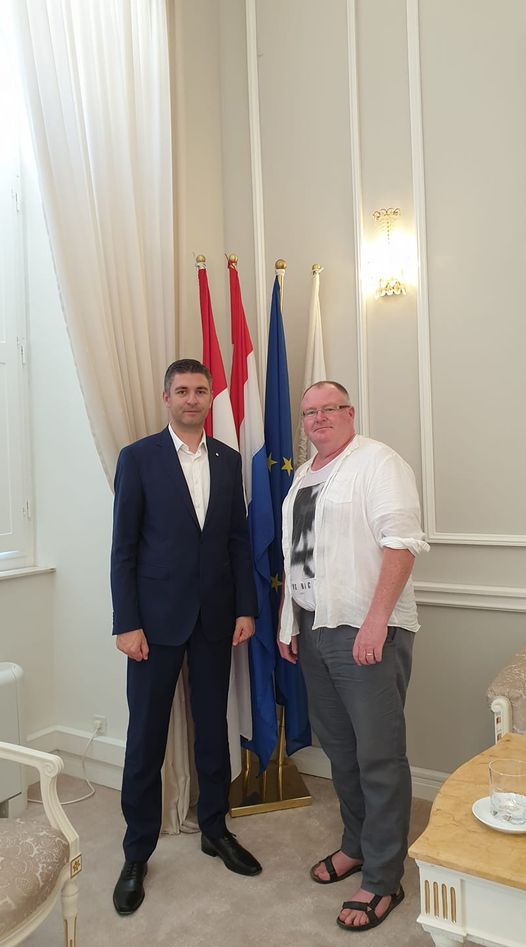
It is just 15 months since the Mayor of Dubrovnik, Mato Frankovic, gave me 30 minutes of his time to hear some ideas we had regarding sustainable Dubrovnik tourism. Half an hour later, we had an agreement to cooperate, and work started the next morning with Deputy Mayor, Jelka Tepsic, and Dubrovnik Tourist Board director, Ana Hrnic.
Despite the considerable restrictions caused by the pandemic, progress has been swift. In October last year, the first-ever digital nomad conference, Dubrovnik for Digital Nomads, was held in Dubrovnik. It was a cooperation between the city of Dubrovnik, Dubrovnik Tourist Board, Saltwater Nomads, and Total Croatia News.
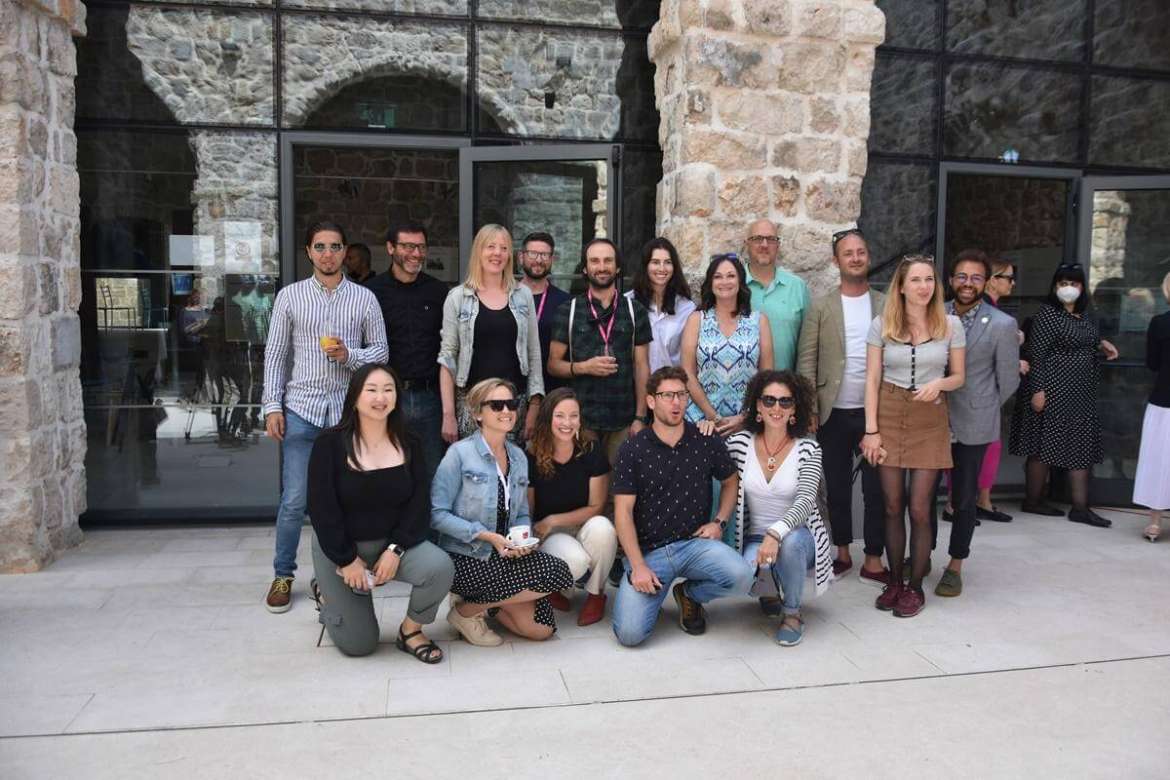
It was followed by the Dubrovnik Digital Nomads-in-Residence program, the first event of its kind in the world, where 10 international nomads from different backgrounds and experiences, came to the city for 4 weeks to work with the city, tourist board, and community to co-create a strategy to help Dubrovnik develop its digital nomad strategy to attract more remote workers.
The DN-i-R project achieved international recognition at the recent Conventa 2021 awards in Ljubljana, as well as being presented at the recent Cross Border Coworking Conference in Budva as an example of regional best practice.
At today's event '1 Year On, Dubrovnik for Digital Nomads Workshop' (so-called as it a year since that inaugural conference), Saltwater Nomads CEO and architect of the DN-i-R program, Tanja Polegubic, presented the case study of the findings of DN-i-R. Deputy Mayor Tepsic and Director Hrnic also presented their impressions, with DN-i-R facilitator extraordinaire Erin Maxwell also on stage.

The case study outlined a strategy to success for the project created by the DN-i-Rs, with some very early quick wins to help Dubrovnik on that journey.
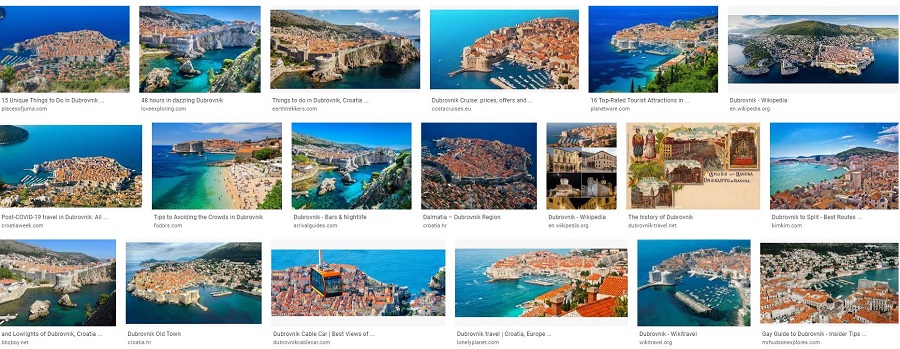
The image and perception of Dubrovnik as a one-dimensional destination with only enough content for 2-3 days was evident at the presentation of the DN-i-R initial findings at a press conference back in May. A simple Google image search of Dubrovnik provided the same results - a spectacular and historic old town, but nothing more. And one of the key findings of the strength and potential of Dubrovnik's tourism was what lay 'Beyond the Walls'. Far from being a 2-3 day destination, find out why these 10 DN-i-Rs concluded that 30 days was not enough to spend in Dubrovnik.
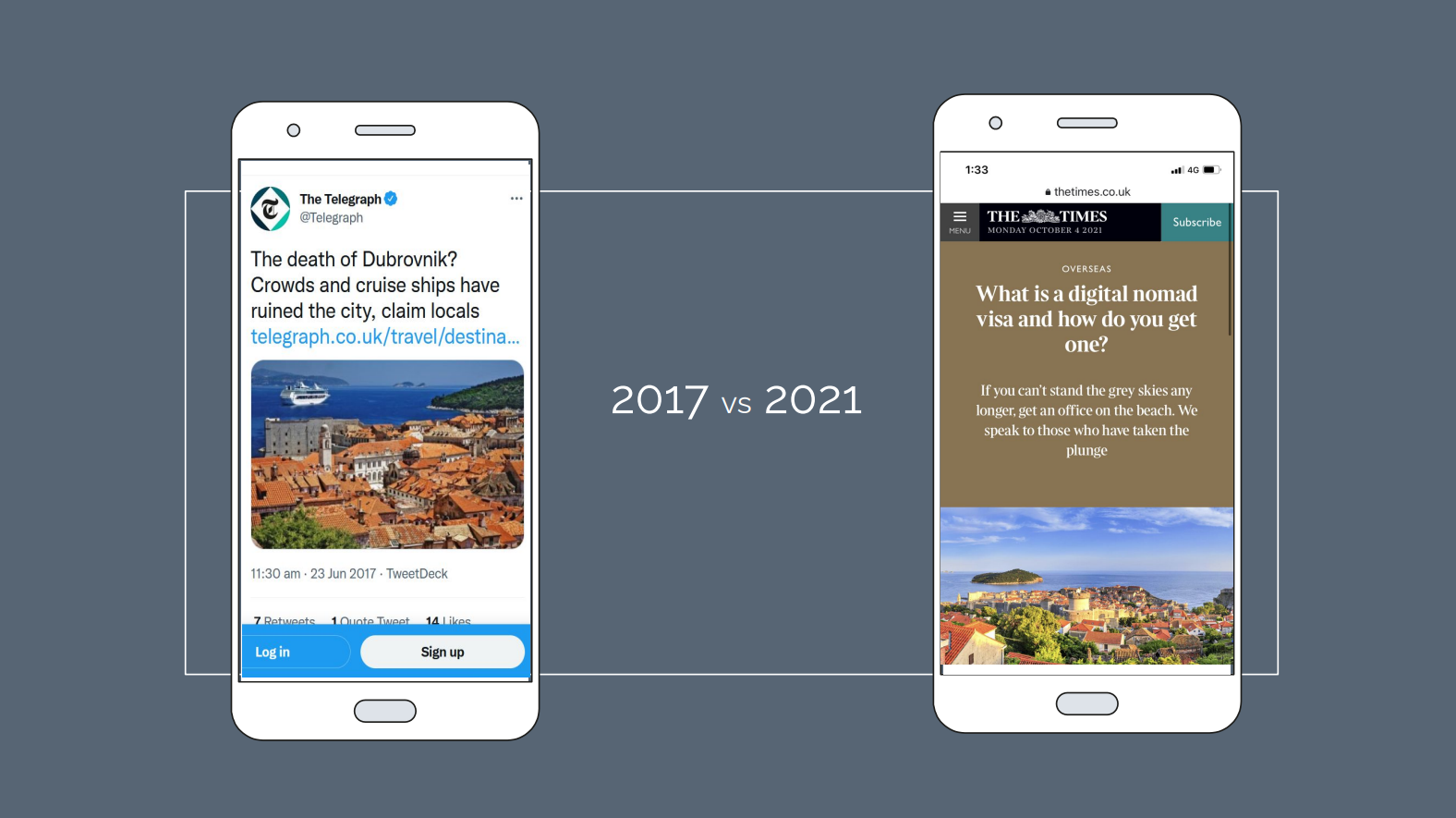
Changing the perception of Dubrovnik is going to take time after the horror years of overtourism prior to the pandemic, but the image (and a real image) of a more sustainable Dubrovnik is already taking hold. Few newspaper editors would have chosen Dubrovnik for the lead photo for an article about digital nomads a year ago, as The Times did recently, for example - in stark contrast to the Death of Dubrovnik headlines in the UK media just 4 years ago.
Leading DN website NomadList is one of the biggest online resources for DN opinions and statistics. The recent 2021 survey was extremely good news, with Croatia named as the 2nd most liked destination after Japan. Data extrapolated from the Trends, based on real geographical data of users of the site showed that nomads were visiting Croatia - including Dubrovnik - in ever greater numbers.
The DN-i-R program can only achieve so much on its own, and it would have had limited success had its recommendations not been implemented. Too often in Croatian tourism, projects finish, a box is ticked, perhaps the right person has been thanked for a favour by being awarded a project. For Dubrovnik's Dn journey to continue, it is essential that the city maintains the momentum, builds the nomad community, and engages the local community.
And not only did Dubrovnik rise to the challenge with their announcements today, but they exceeded my expectations. Among the things Ana Hrnic announced:
- The opening of no less than 3 coworking spaces, at strategic parts of the city - Lazareti by the old town, the Red History Museum in Gruz, and Sunset Beach in Lapad.
- The first co-living space in Dubrovnik.
- A new planned information website for Dubrovnik, with its own visual identity, dedicated to longer-stay visitors.
- A check-in point for DNs at the main tourist board office at Pile Gate by the old town.
- A Dubrovnik Digital Nomad Card.
The Dubrovnik digital nomad card, believed to be the first of its kind in the world, will be launched soon, offering discounts for nomads from participating businesses. As TCN recently reported, the city recently invited businesses to provide special offers for digital nomads staying for an extended period. So far, 17 businesses have joined the programme, with more expected to follow.
Deputy Mayor Tepsic also stressed the importance of involving and educating the community, with plans to hold monthly hybrid workshops to help Dubrovnik's tourism businesses better understand and adapt to the DN opportunity.
Participation of the local community and local authorities will be crucial for the success of the initiative, and the facilitators of DN-i-R have been extremely impressed at the high level of engagement from the local community. This was in evidence once more today, as community members from the adventure tourism, restaurant, and private accommodation businesses explained how they were adapting their offers to welcome digital moments. Continued education, encouragement and information will only bring out more such offers.
There is a long way to go, but Dubrovnik is demonstrating once again its willingness to take the lead in an attempt to build a more sustainable Dubrovnik tourism model.
For more news and features on digital nomads in Croatia, follow the dedicated TCN section.
Croatia Through the Eyes of a Digital Nomad: Boranka Plants Virtual Trees in Real Life
October 21, 2021 - The Boranka reforestation campaign encourages children to color trees and volunteers to plant them, it’s part of an ongoing effort to bring the green back to the burnt area of Dalmatia.
Ever since my Girl Scout days, the Scouts hold a special place in my heart. Americans love the cookies (I sold plenty of ‘em), but I’m talking about the program. I filled my sash with badges earned for all sorts of activities, including a badge my mother made for our troop when we came up with a new sewing project. When I heard about the Boranka campaign, led by the Scout Association of Croatia, I was keen to volunteer for the reforestation effort on the mountain. Plus, it’s a great day outside in nature.
(Scout leaders making tight neckerchiefs. This part of the scout uniform represents a scout’s promise to uphold Scout beliefs and it also has practical functions, such as protecting the wearer’s neck and being made into a slink or bandage for first aid.)
So many volunteers
This was my second year as a volunteer, planting seedlings on Mosor Mountain. Unlike my first experience with other digital nomads and expats, I was side by side with Croatians from a long list of organizations that support the campaign, including Croatian Forests, Croatian Mountain Rescue Service, Scouts of Brodosplit, Croatia Red Cross, Croatia Navy, Croatia Civil Protection, and of course, the Scout Association of Croatia which leads the physical effort as well as the marketing campaign. It was an impressive bunch up there!
(The Croatian Navy is the first group to head up Mosor, where they will disperse into different sections on the mountain.)
It’s amazing how much interest there is—Croatian schools, mountaineers, armed services units, veterans, and the president, along with NGOs, ambassadors, and expats from around the world, have been on the mountain doing the same job as me and getting their hands dirty.
(Darko Gavrić, head of the Croatian Mountain Rescue Service (HGSS) in Split told reporters, “We’re all working together on this.”)
Split scouts
A free bus took us volunteers from Split and when I arrived in the area known as Korešnica, I was given a pair of gloves, water, a sandwich, fruit, and a cool goody bag. Nearby, I watched some scout leaders roll up a neckerchief with precision; this is part of the scout uniform. Three women held the corners of a scarf and pulled tight as a fourth began rolling one edge. The leader rolled and pulled, rolled and pulled, and finally handed the finished piece to her colleague who placed it around her neck. I noticed how skilled the women were at this and when I mentioned that it was funny to watch them work so seriously and still keep up their casual chatting, they laughed and were like, “yeah, no big deal.”
(Two members of the Croatia Civil Protection from Zagreb with Sanja Matešić, President of Sea Scouts Brodosplit, and Dan Špicer, Business Director of the Scout Association of Croatia and Boranka campaign coordinator—all on active duty for a great day of volunteering.)
Sea Scouts Brodosplit
The Scouts of Brodosplit—aka Sea Scouts Brodosplit—were heading up the weekend’s volunteer effort, a job that rotates between six different local Split units each weekend. Scout Mihi, the “Chief of Staff,” and his wife Sanja, “the boss” (the president), were there with nearly 40 of their members, including a big group of teens and others they call Friends of Scouts. For the latter, this is “a way of life and a way of helping,” Sanja said. She loves running camps with the members, especially the Cubs, all over Croatia.
(Even with a pickaxe, digging holes in Mosor’s rugged mountain terrain can be tough with all the stone.)
Planting seedlings
When it was time to get to work, we formed into little teams—one person dug holes and another placed seedlings in the ground. Others went back and forth from the supply truck to pick up more trees. Weather can be harsh in this landscape with intense summer heat and year-round Bura wind. To help these little guys succeed, you have to pat down the dirt firmly around them and surround each one with small rocks to hold the dirt in place and keep the moisture in the ground.
(Volunteers from all over the world and different backgrounds meet on the mountain for a productive and fun day.)
Roughly 90,000 trees have been replanted in four years, a mix of local pine and oak varieties. These native species somehow grow in rock, not like our trees in the U.S. that grow in dirt. Apparently, there’s enough water below the surface of this karst landscape to keep them alive.
(Everybody works together, digging and planting, with lots of friendly banter included.)
Boranka campaign
My burning question was, what does the word Boranka mean? Dan Špicer, business director of the Scout Association of Croatia and the Boranka campaign coordinator, filled me in. Bor translates as pine and bojanka as coloring book. “It’s a word game,” he said, a clever marketing concept based on bringing the program to the people and “coloring your tree.”
Dan’s team came up with an idea to make crayons from the burnt pine trees. When you use one to draw and see the color on your fingers and the paper, a connection is created—to the fire, to nature, to the campaign. Over 150,000 ash crayons have been made so far and over 10,000 have been distributed to schools.
(Tips for helping the small seedlings grow successfully include pushing down the dirt firmly then surrounding them with stones, which are protective measures against harsh growing conditions.)
Kits instruct kids to color their own forest and name their tree. For every tree drawn and uploaded to a database, a tree is planted by Boranka volunteers. At one point the system overloaded due to the overwhelming response.
There was another hurdle early on to get the crayons made. “Where do you burn two trucks full of burnt trees?” Dan found a factory willing to help and they devised a special formula. The machines jammed at first, they weren’t used to ash, but the team figured it out.
(Seedlings ready to be picked up by volunteers and planted.)
Future campaign
With millions of trees lost in the devastating 2017 fire around Split, the Boranka effort isn’t going away any time soon. In November, a new campaign will start — Co2mpensating by Planting. This CO2 program appeals to organizations’ desire to offset their carbon footprint. Companies will buy trees and scouts and volunteers will plant them, it’s a direct one-to-one transaction. The European parliament and the American embassy are already onboard with support.
When asked about coordinating such a big undertaking, with so many moving parts and pieces and different organizations, Dan told me, “the campaign came easy, it came out of a need, to save something, not just to plant trees.” That’s what he cares about and that’s what I love about Scouts, their heart and passion.
(Campaign kits called “Draw Your Tree” include an ash crayon, drawing paper, and instructions on how to draw your tree and plant it in the virtual forest (in the database) where it will be turned into real tree planted by Boranka volunteers.)
Digital nomads and others can still volunteer for this upcoming weekend, October 23 and 24. Find more information on the Boranka Facebook page.
Story and photographs ©2021, Cyndie Burkhardt. https://photo-diaries.com
Learn more at TCN’s Digital Nomads channel.
Building Community, Offering Content at European Freelancer Week in Split
October 21, 2021 - Small events all over the country are building community, as digital nomads discover the magic of Croatia while connecting with new contacts from a similar mindset.
One of the things I have never understood about living in Croatia is why everything shuts down over winter on the coast. As we learned in this very revealing interview with a UK tour rep based in former Yugoslavia in 1990, Croatia was very much Full of Life before the Kingdom of Accidental Tourism took over.
And it can be again.
These are very early days in the digital nomad story for Croatia, but the early signs are very encouraging indeed. Each week seems to bring a new event or announcement, and the community is slowly building. Events are being organised all over the country, and they are proving popular. Having lived full-time through 13 Dalmatian winters, I have some experiece of what life is like with little happening. But with just a bit of effort, communities can come to life in these quieter months - with benefits for tourists and locals alike.
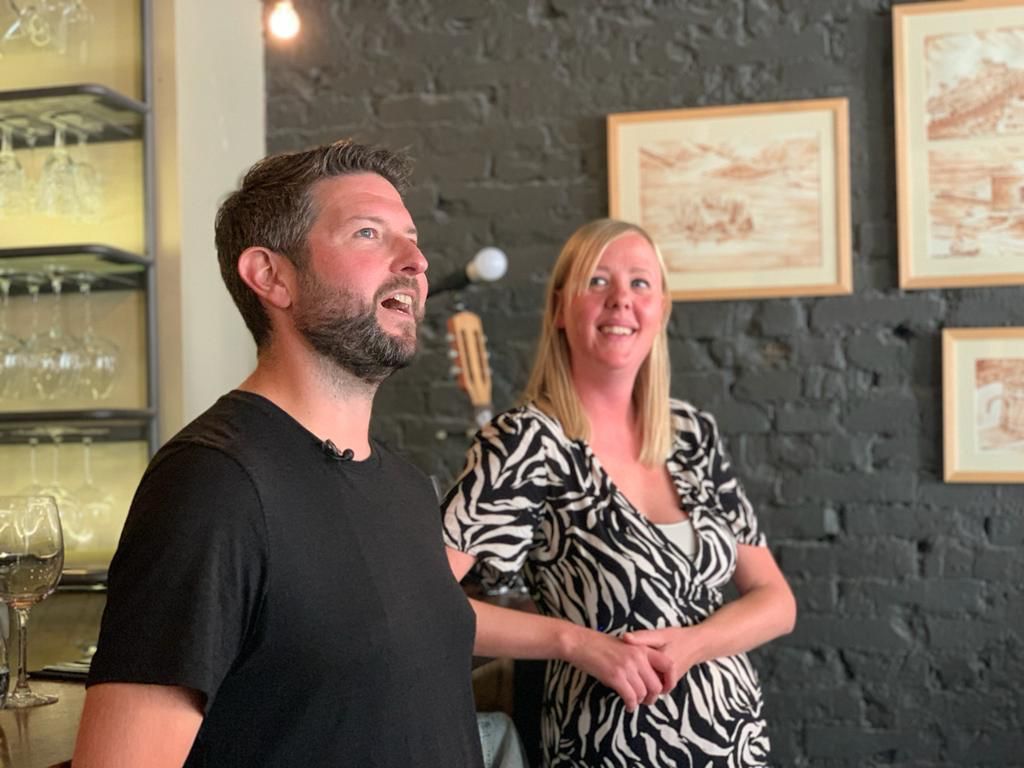
The recent announcement of the Zadar Digital Nomad Valley project brought over 200 applications in the first 10 days. Meetups in other cities are also attracting interest, and the more of these events that are available, the more attractive it is to come and work and stay through the winter months.
One great example of this was a lunchtime event in Split yesterday, as Charlie Brown, one of the Dubrovnik Digital Nomads-in-Residence earlier this year, together with husband Sam hosted a talk on life on the road and the digital nomad lifestyle with lunch and winetasting at Zinfandel in the centre.
Lunchtime on Wednesday in mid-October is hardly peak season, but the event was a sellout, with diners from a number of countries: New Zealand, Australia, the Netherlands, France, Germany, UK, USA, Cananda and Croatia.
The event, part of European Freelancer Week, was streamed live by Nick Hathaway from Hashtag Content Agency, and you watch thee Browns in action, above.
As an ice-breaker, guests were asked what was the highest mountain peak they had scaled in their lives. With the highest number somewhere around 3,000 metres, up stepped Croatian legend, Stipe Bozic, with 8,848.46 metres - Bozic was only the second European to scale Mount Everest twice.
The Browns are great examples of the type of spending digital nomads who are falling in love with Croatia, spending more time here than they originally envisaged, and telling their own family and friends all about it.
As as more events are planned, and as the community grows, more will come.
The Zinfandel event was organised by Saltwater Nomads, who will be restarting its popular Nomad Table next Friday, a weekly gathering of nomads at Zinfandel.
Meanwhile, in an alternate reality - Gourmet Croatia: 35% Off Popcorn the Only Offer in Kingdom of Accidental Tourism.
For more news and features on digital nomads in Croatia, follow the dedicated TCN section.
Dubrovnik Digital Nomads-in-Residence 6 Months On: Kelsey Kay Love
October 21, 2021 - In April this year, 10 digital nomads from all over the world came together for the inaugural Dubrovnik Digital Nomads-in-Residence (DNIR) program. As part of European Freelancer Week 2021, TCN catches up with some of them 6 months on - next up Kelsey Kay Love from Los Angeles.
A year ago, the city of Dubrovnik held the first-ever digital nomad conference in Croatia - Dubrovnik for Digital Nomads - as part of European Freelancer Week. The city has made great strides advancing its DN credentials and strategy, thanks in part to the award-winning Dubrovnik Digital Nomads-in-Residence program, which ran from April 23 - May 23.
The program was all the richer for the presence of Kelsey Kay Love from California. TCN caught up with KKL 6 months later to get her current perspective on the program, Dubrovnik and the Croatian digital nomad journey.
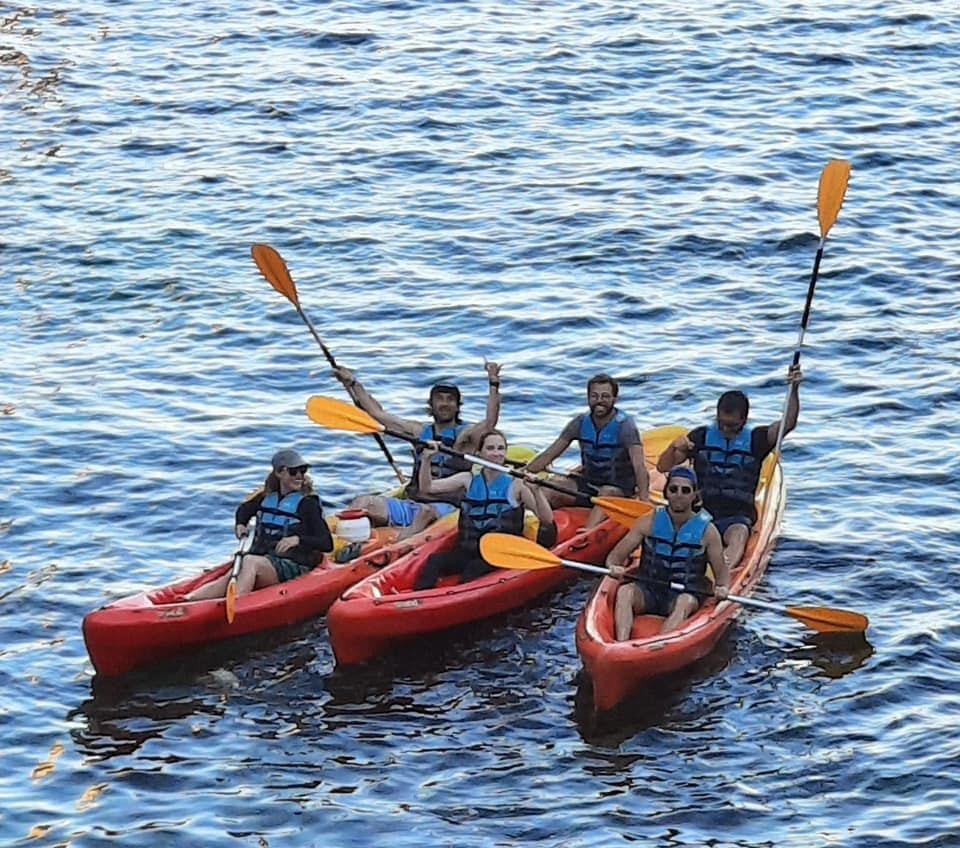
1. It is 6 months since you arrived in Dubrovnik for the Dubrovnik Digital Nomads-in-Residence program. Firstly, a brief look back at that month. How was it for you, and how did it change your perceptions of Dubrovnik as a nomad destination?
Dang 'ol dang, time flies. I can say, with zero hesitation, that the month spent in Croatia for the Digital Nomads-in-Residence program was my best month of life for both 2020 and 2021, and we're not even through the rest of this year yet.
It was an incredibly memorable experience, not only because of my glorious fellow nomads and our amazing organizers, but in terms of it being my first ever reference of Croatia itself. Before that experience, I had no real frame of reference for Dubrovnik at all, as I'd never met anyone who'd spent any real time there. This opportunity changed that in every way; spending four whole weeks there during a period where tourism was still incredibly scarce was a real eye-opener, and allowed us to see the city's potential in a way that we likely couldn't have during any other normal year.
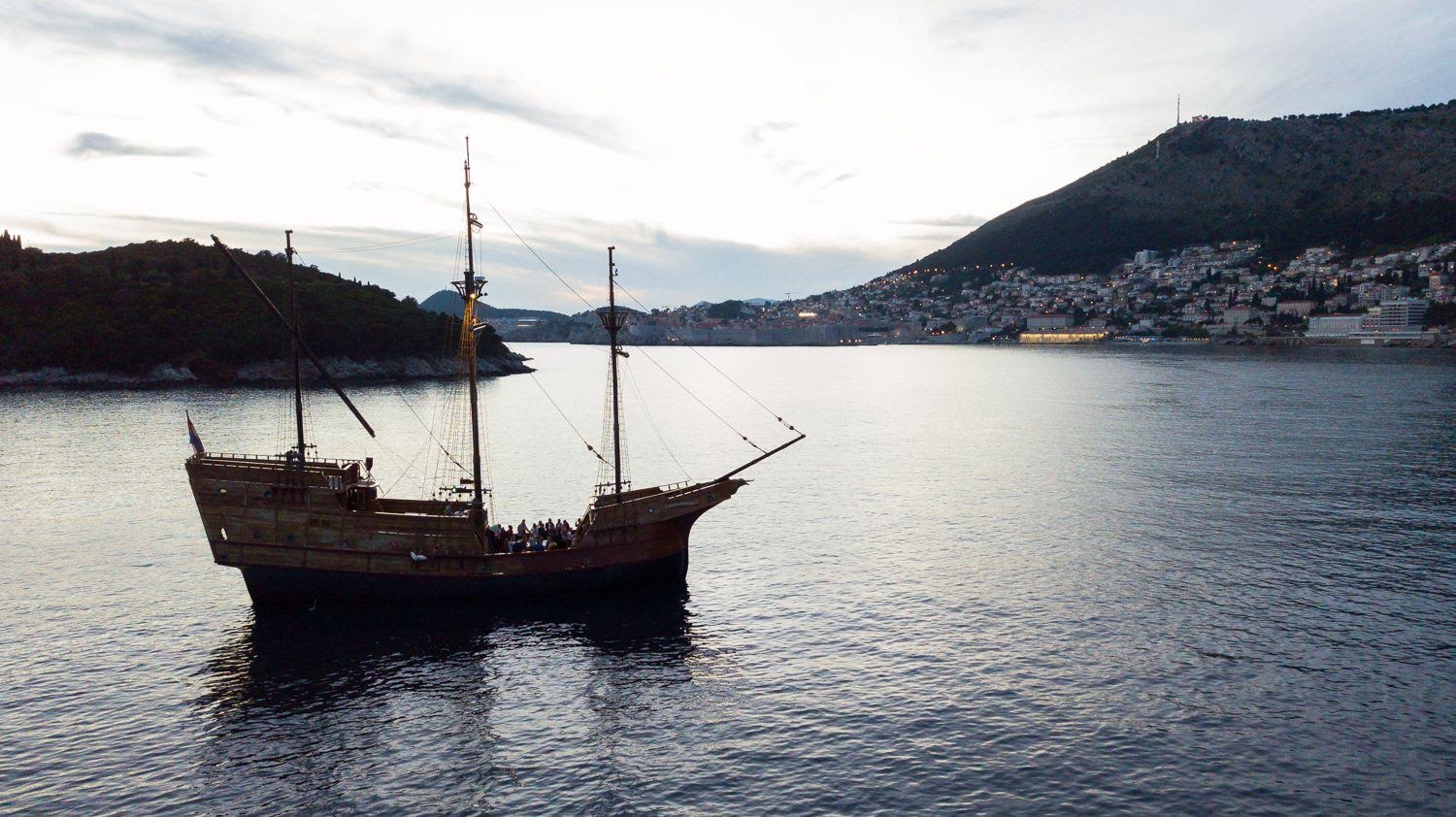
2. Have you kept in touch with others from the project? Spent any more time in Croatia?
Yes! I have been on a couple of Facetime calls with the nomads, and speak regularly with them through Discord and social media.
I have unfortunately not spent any more time in Croatia (yet), as I live just about half way across the globe at the moment, but dearly hope to return next year.
3. It seems that a lot has been happening in the DN scene in the last few months since the program. Zagreb Digital Nomad Week, Digital Nomad Valley Zagreb, the Cross Border Coworking Conference in Budva, Croatia performing strongly in the Nomad List 2021 survey. What changes have you noticed since arriving in Dubrovnik back in April?
At least from where I'm sitting in the States, there's a very noticeable trend and preference for remote jobs and work opportunities, digital nomad visas and a growing realization that living in Europe is easier than it ever has been, and perhaps ever will be, for U.S. citizens and residents.
Because I still have a Google alert for 'digital nomad visa Croatia' — the very reason I found out about the contest in the first place — I also see how often Croatia is being talked about in international and local media, which is exciting and very well deserved. If Croatia wasn't a consideration for digital nomads before, I'd say it very likely is by this stage.
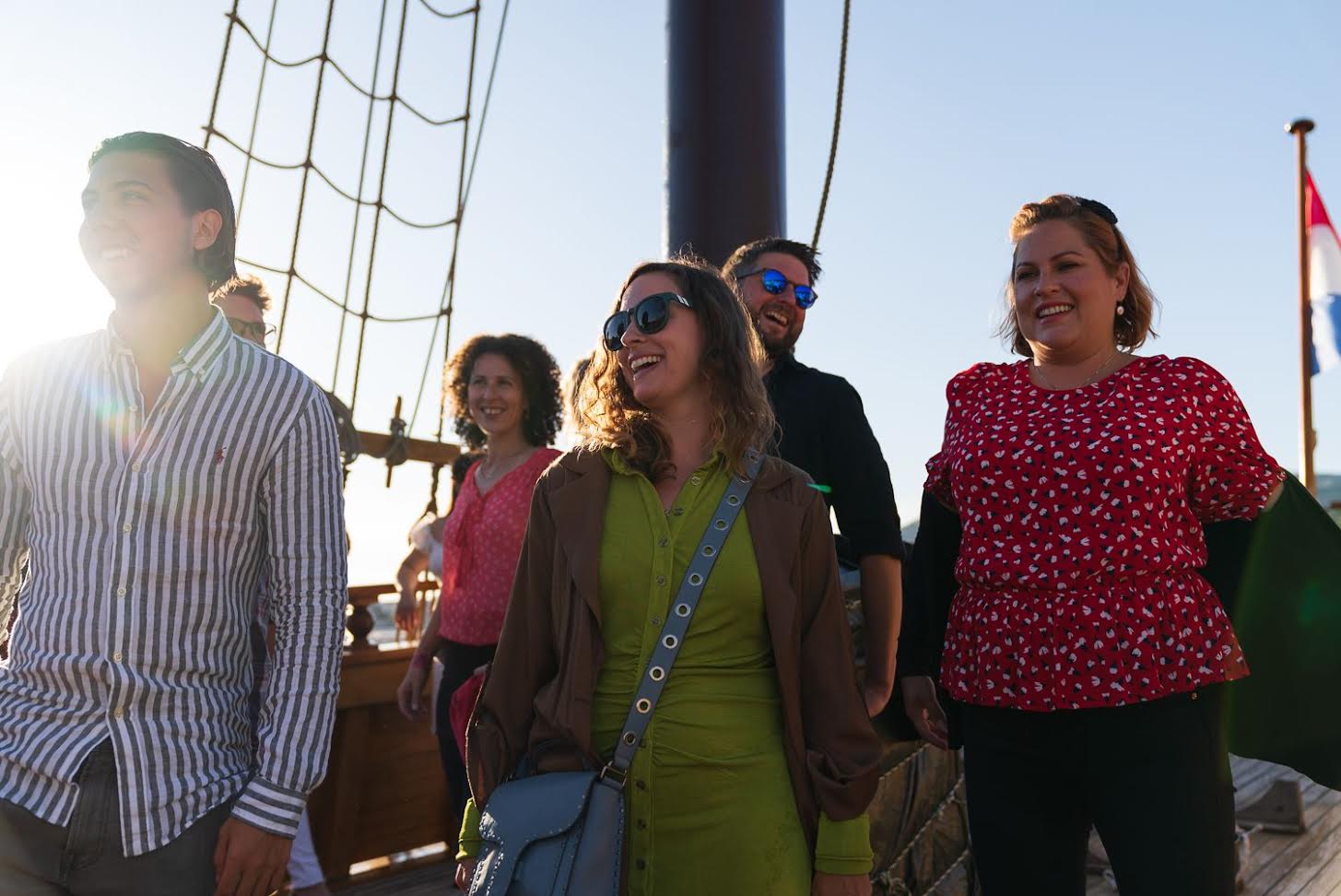
4. Have you noticed any change in the way Croatia is talked about in the global DN groups you engage with online? In what way if yes?
After publishing a post about my experience on my own blog, Travelin' Fools, I received several emails and comments from complete strangers asking about coworking spaces and my opinions on the city itself as a long or short term liveable destination. To me, this clearly indicates an interest in Dubrovnik as an intriguing next option.
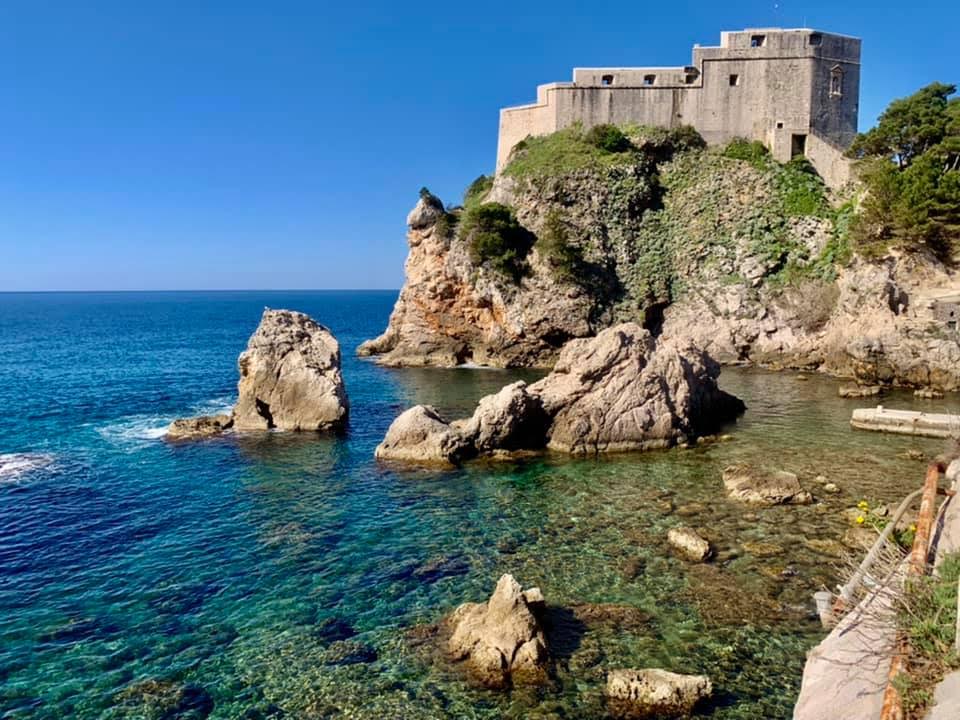
5. What would you say are the key next steps for Dubrovnik on this journey, and for Croatia as a whole
Start marketing the opening of a Dubrovnik coworking space, regardless of a set opening date. Additionally, start talking to well-known travel writers, photographers and videographers and creating long term partnerships for content related to Croatia's growing digital nomad opportunities. The more content you have to work with — both in terms of quality and quantity — the better it will be to those looking for information on moving to Croatia, and what areas they'd potentially like to settle in.
6. Your favourite memory/experience from DNIR, and when do expect that Dubrovnik will see you next?
I will never, ever forget eating lunch at Konoba Maha in Korcula. Watching giant Croats with tiny man buns fasten dainty leaves to my delicious cocktail before serving me a giant plate of peka? Into it.
Well, the nomads have already talked about a European reunion in time for Eurovision next year, so I fully expect to step foot in Croatia again in 2022. Until then, I'll have to enjoy my wine in an overpriced bar in Hollywood. Sigh.
For more news and features on digital nomads in Croatia, follow the dedicated TCN section.


